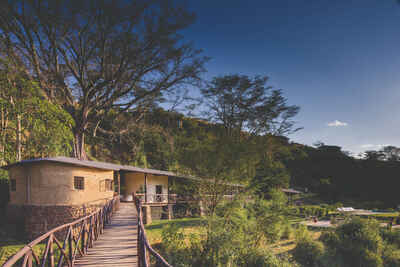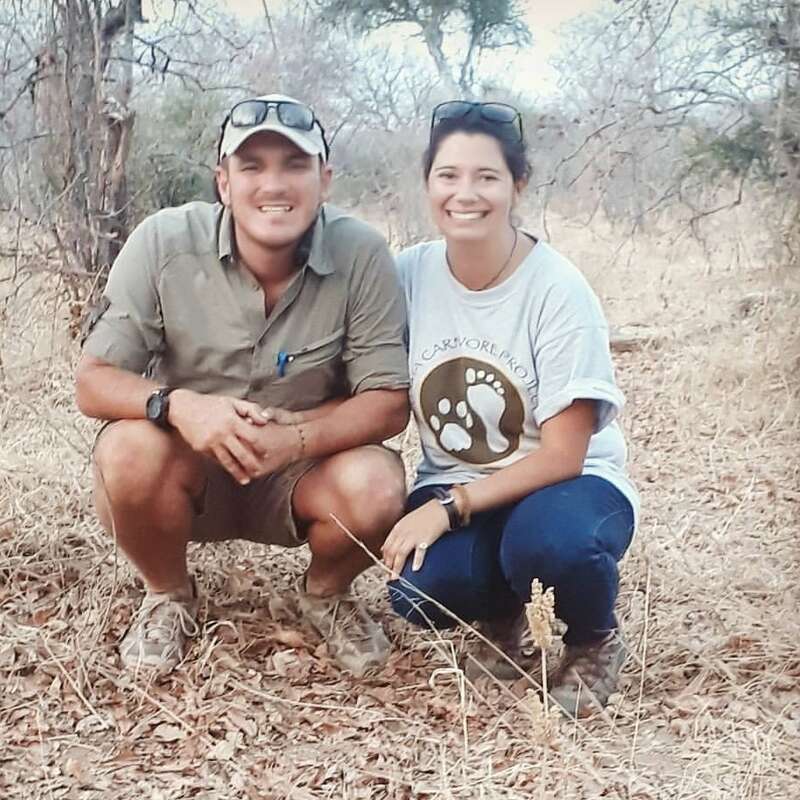About The Emakoko
The Emakoko is a unique, owner-managed lodge that opened in 2012.
It straddles the southern boundary of Nairobi National Park, marked by the gorge of the Mbagathi River in an area where three rivers converge. The lodge has the national park's much underrated game-viewing areas on its doorstep and easy access to both Nairobi's airports.
For a Nairobi hotel, The Emakoko is a very special place. We have stayed here many times since it opened; there is a palpable buzz about it that is infectious. We had to keep reminding ourselves that we were only a few miles from central Nairobi. The location is spectacular, and the opportunity to make a wildlife-watching virtue out of the transfer through the park to either of the airports – often a traffic-jammed torment from most hotels – is an outstanding asset.
Our view
For a Nairobi hotel, The Emakoko is a very special place. We have stayed here many times since it opened; there is a palpable buzz about it that is infectious. We had to keep reminding ourselves that we were only a few miles from central Nairobi. The location is spectacular, and the opportunity to make a wildlife-watching virtue out of the transfer through the park to either of the airports – often a traffic-jammed torment from most hotels – is an outstanding asset.
Accommodation
10 cottage rooms
Children
Fine for all ages
Open
All year
Activities

4WD Safari

Birdwatching

Cultural excursion

Elephant encounter
Traveller reviews of The Emakoko
128 real, un-edited reviews from Expert Africa's travellers.
Arrived 5 Feb 2025, 1 nights
"The Emakoko review"
Overall rating: Excellent
Arrived 26 Jan 2025, 2 nights
"The Emakoko review"
Overall rating: Excellent
Arrived 26 Jan 2025, 1 nights
"The Emakoko review"
Overall rating: Excellent
Arrived 26 Jan 2025, 1 nights
"The Emakoko review"
Overall rating: Excellent
Arrived 26 Jan 2025, 1 nights
"The Emakoko review"
Overall rating: Excellent
Arrived 26 Jan 2025, 1 nights
"The Emakoko review"
Overall rating: Excellent
Arrived 9 Jan 2025, 2 nights
"The Emakoko review"
Overall rating: Excellent
Arrived 8 Jan 2025, 1 nights
"The Emakoko review"
Overall rating: Excellent
Arrived 29 Sep 2024, 2 nights
"The Emakoko review"
Overall rating: Excellent
Arrived 24 Sep 2024, 1 nights
"The Emakoko review"
Overall rating: Average
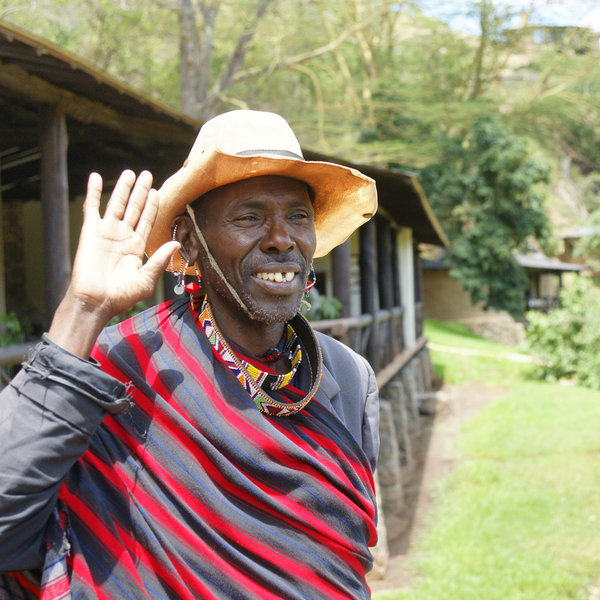
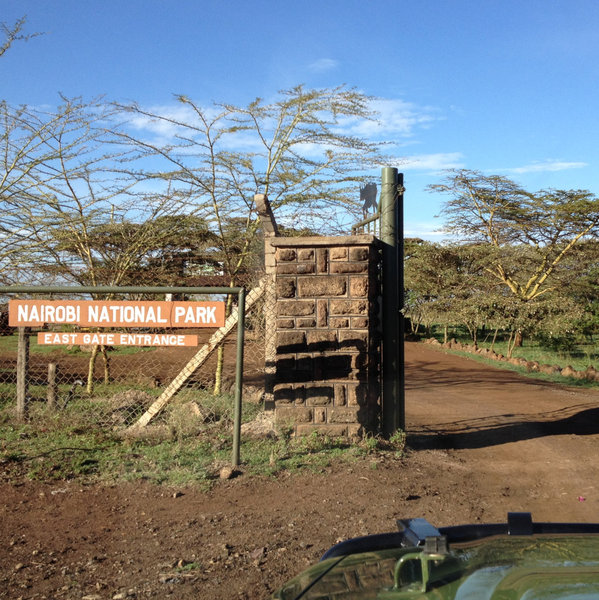
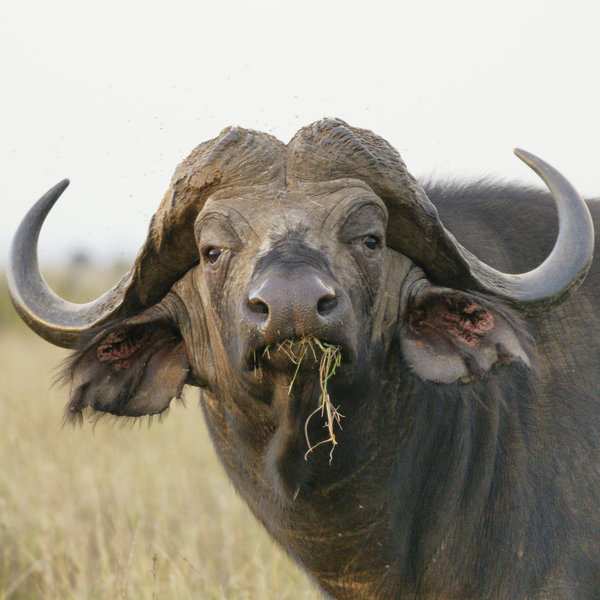
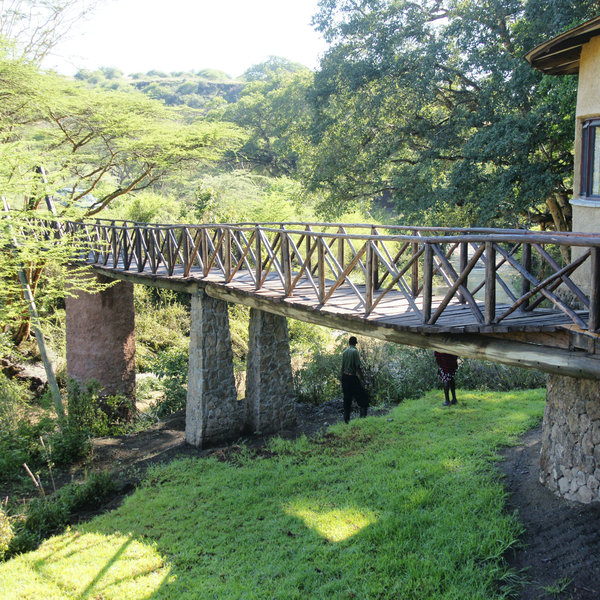
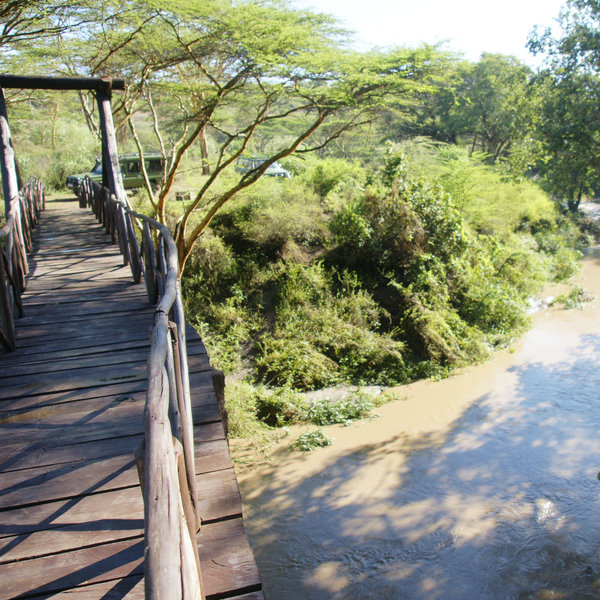
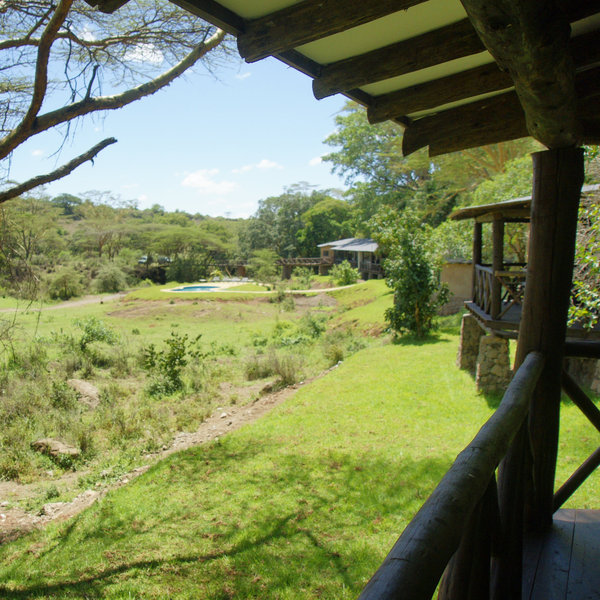
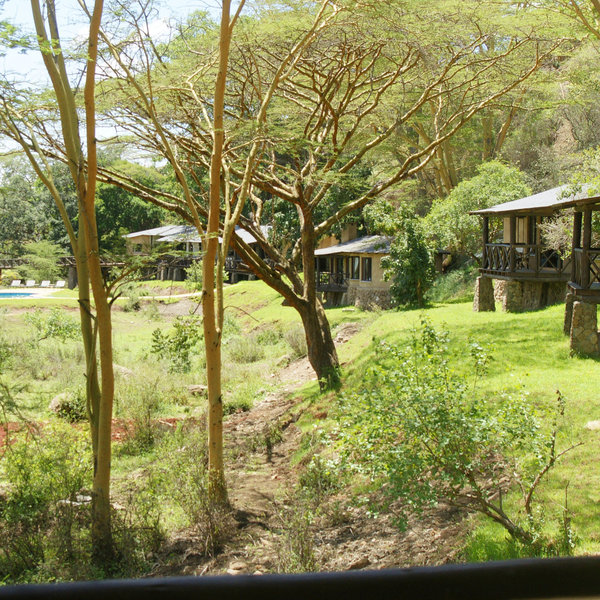
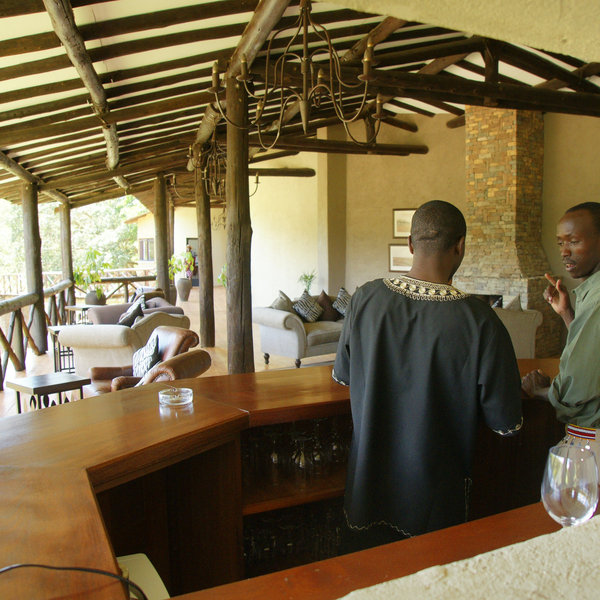
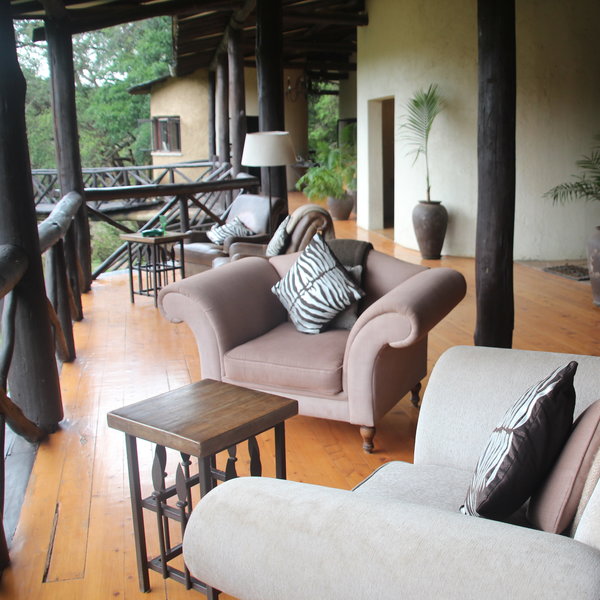
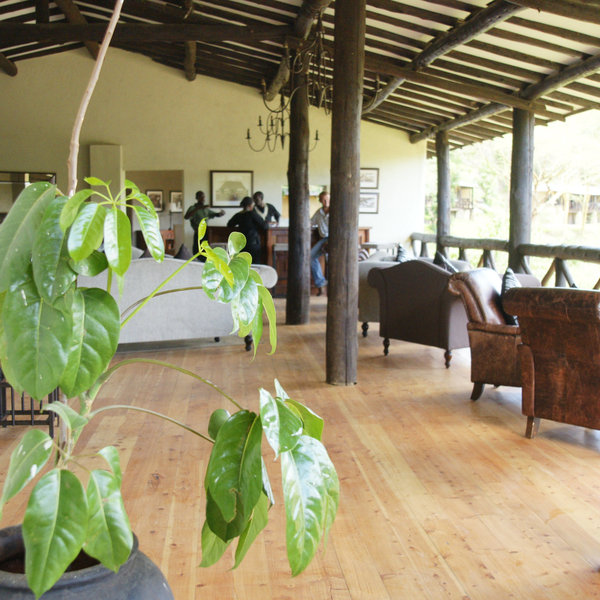
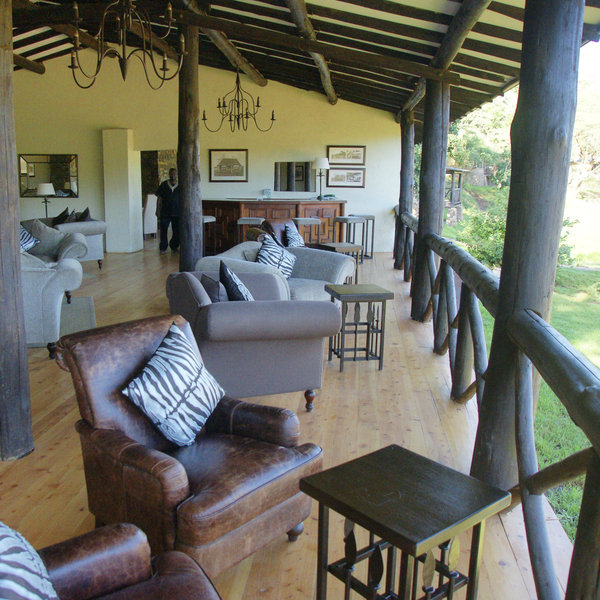
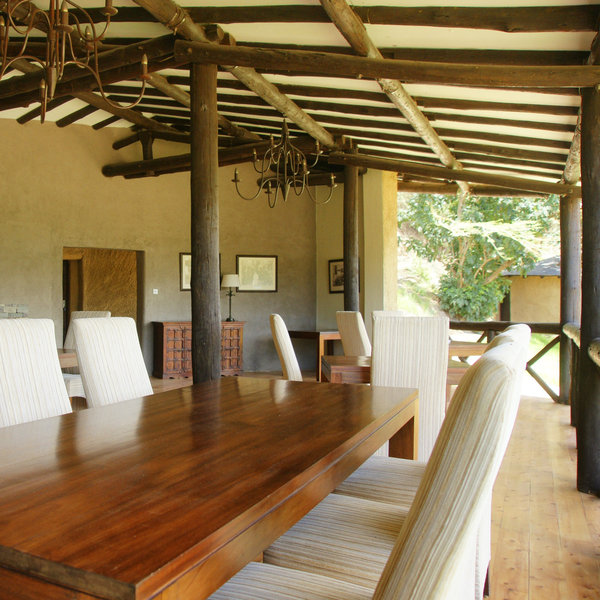
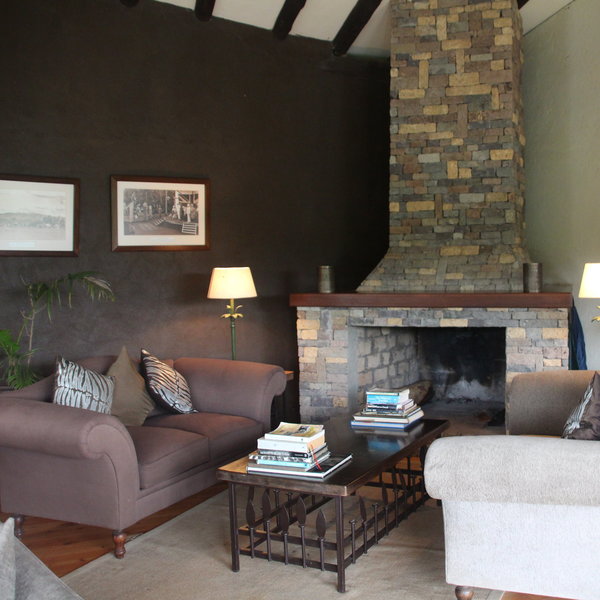
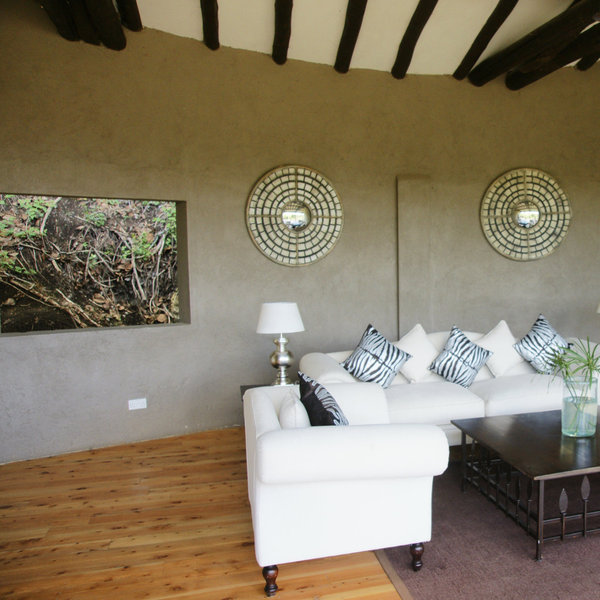
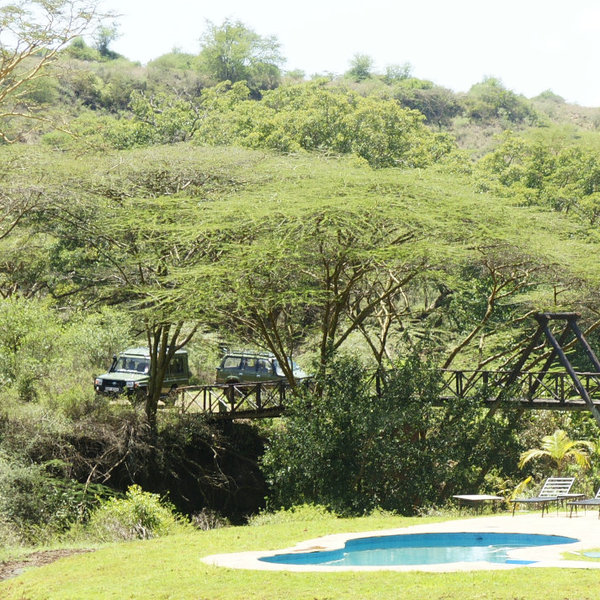
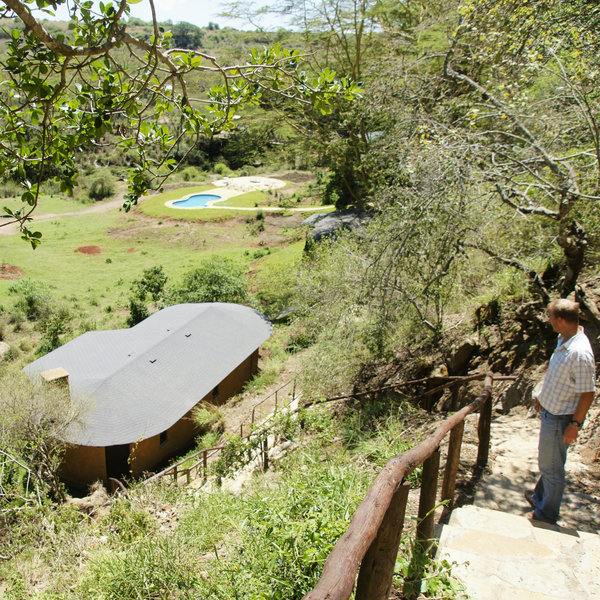
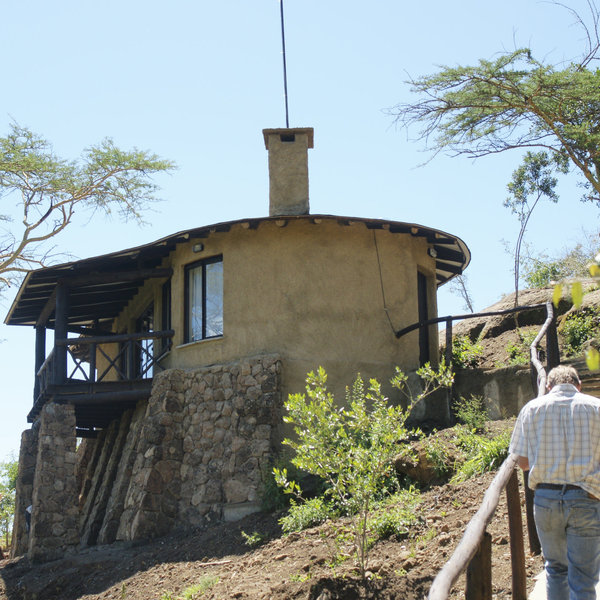
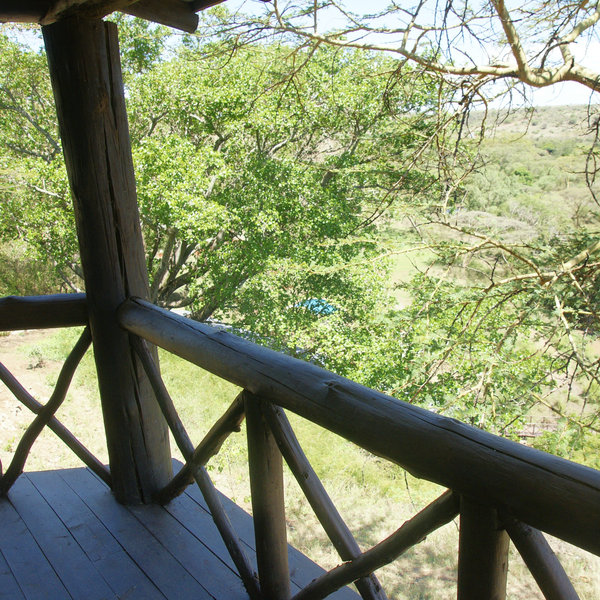
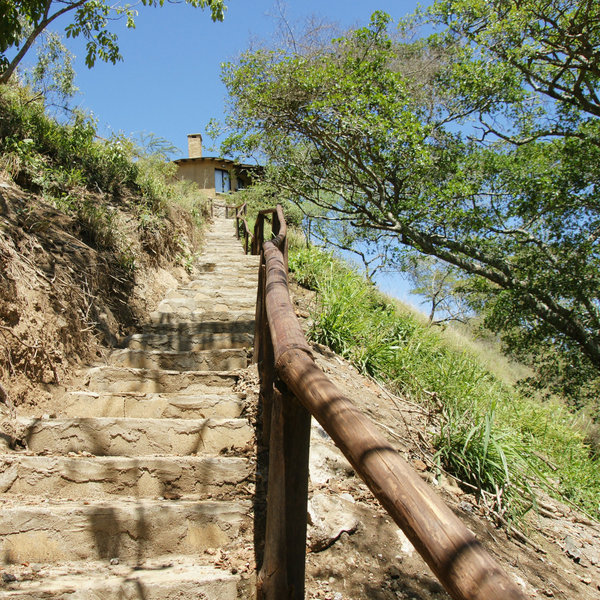
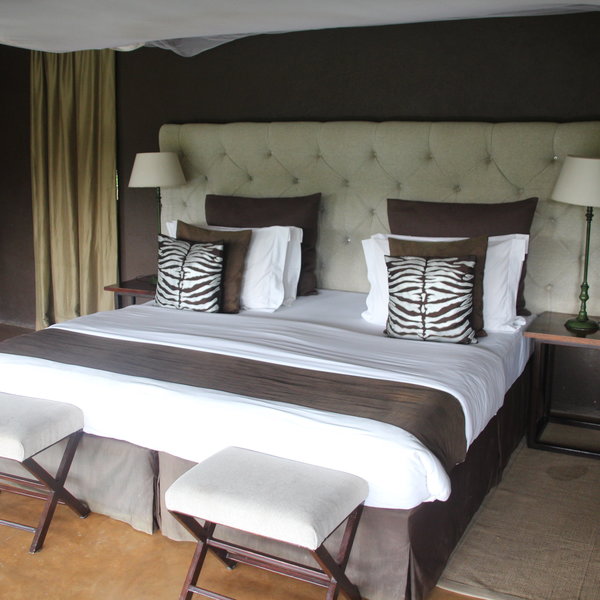
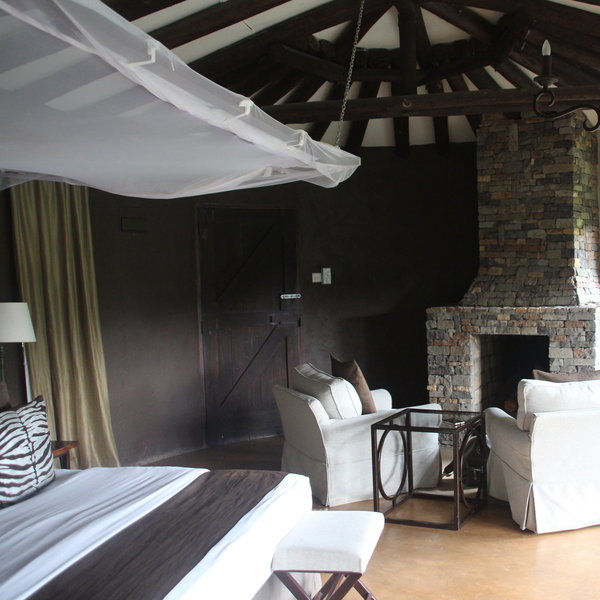
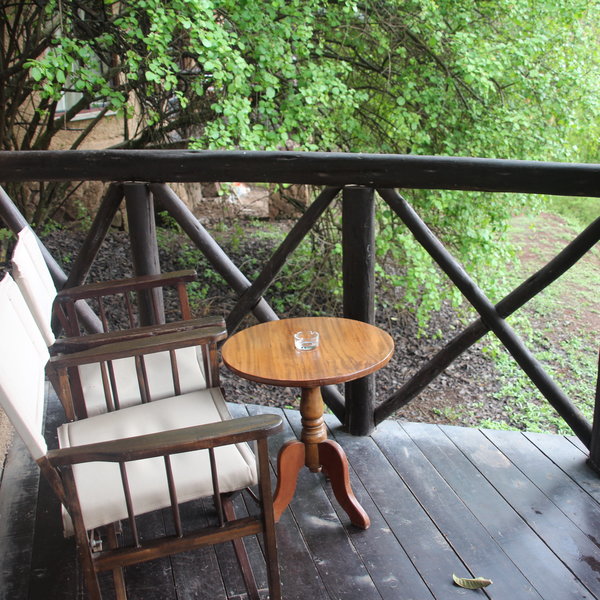
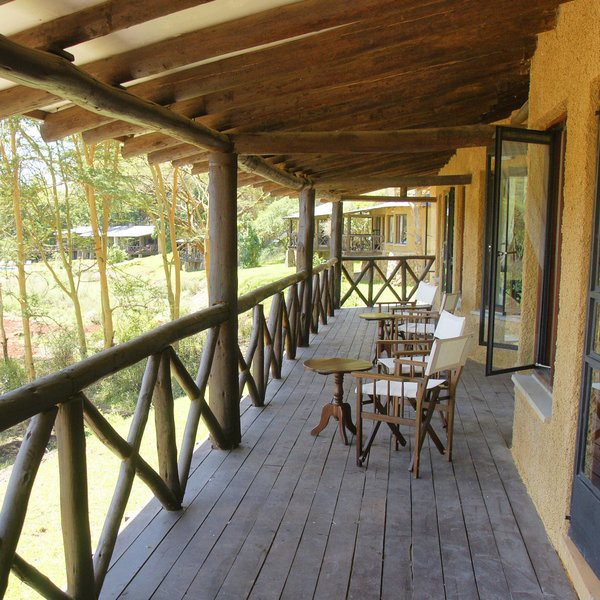
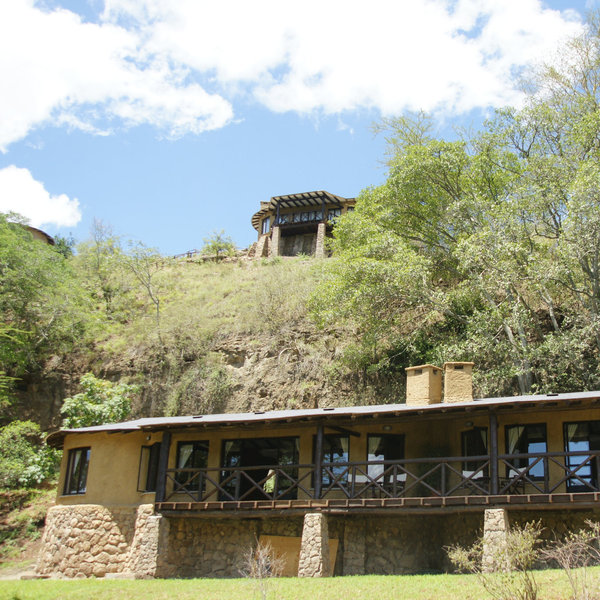
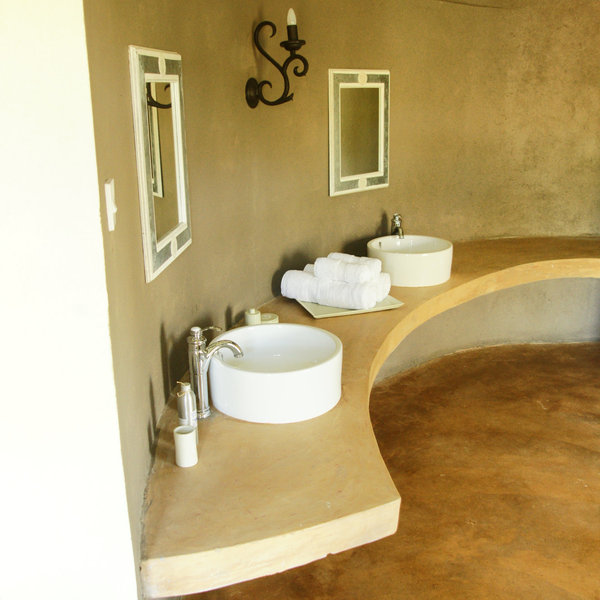
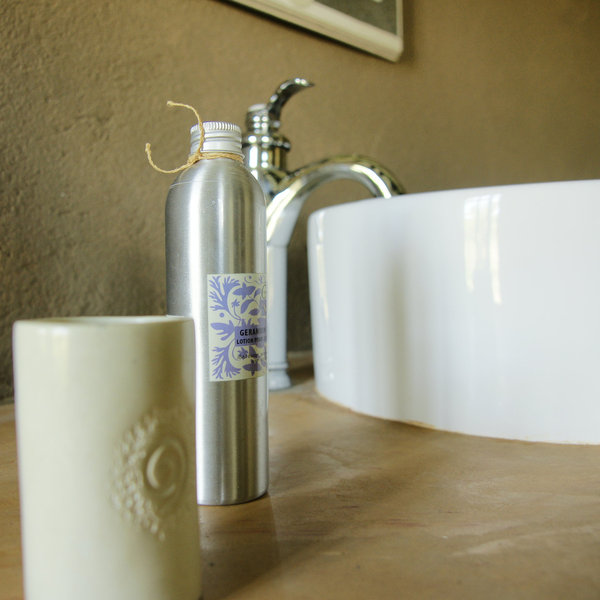
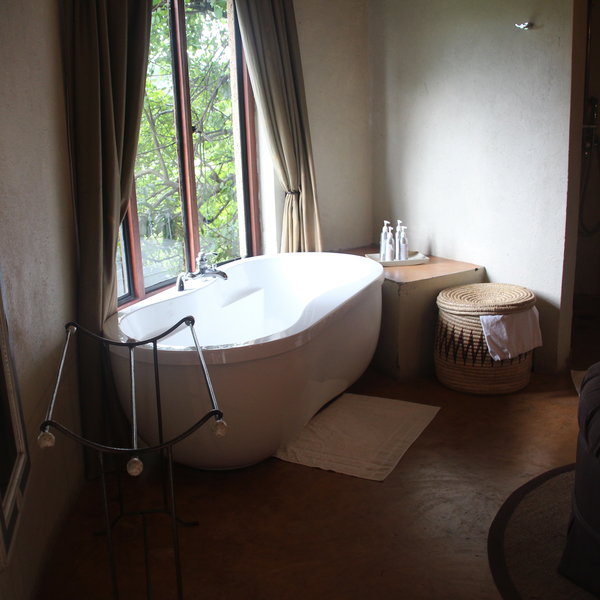
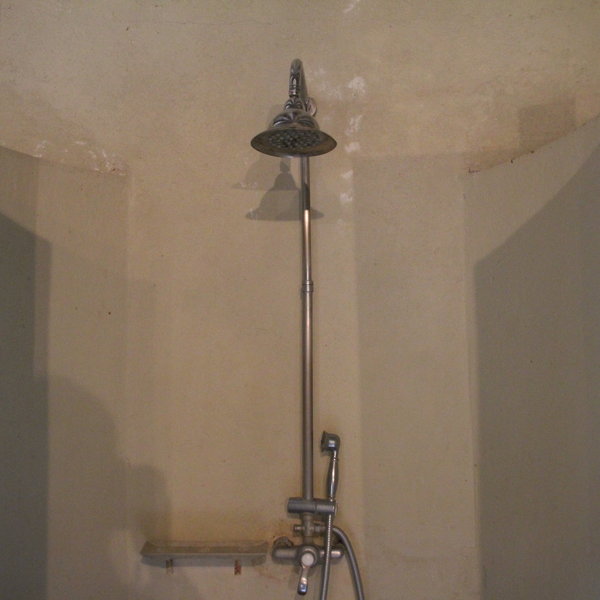
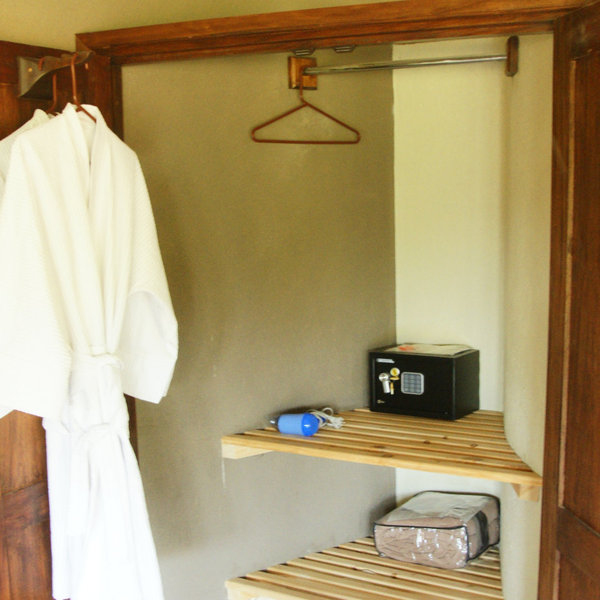
Expert Africa's gallery
When we travel we take lots of photos ourselves to give you a real and un-edited view of the trips. See our 39 pictures of The Emakoko to get the candid view.
View galleryTrips visiting The Emakoko
Just ideas, we'll always tailor-make a trip for you
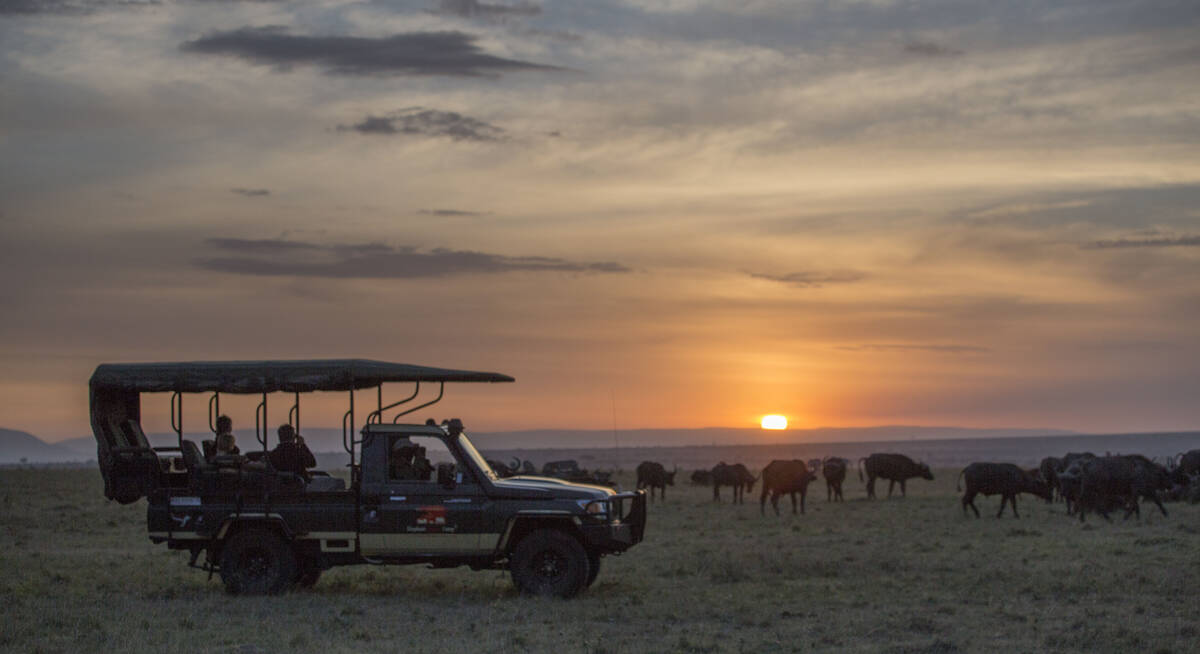
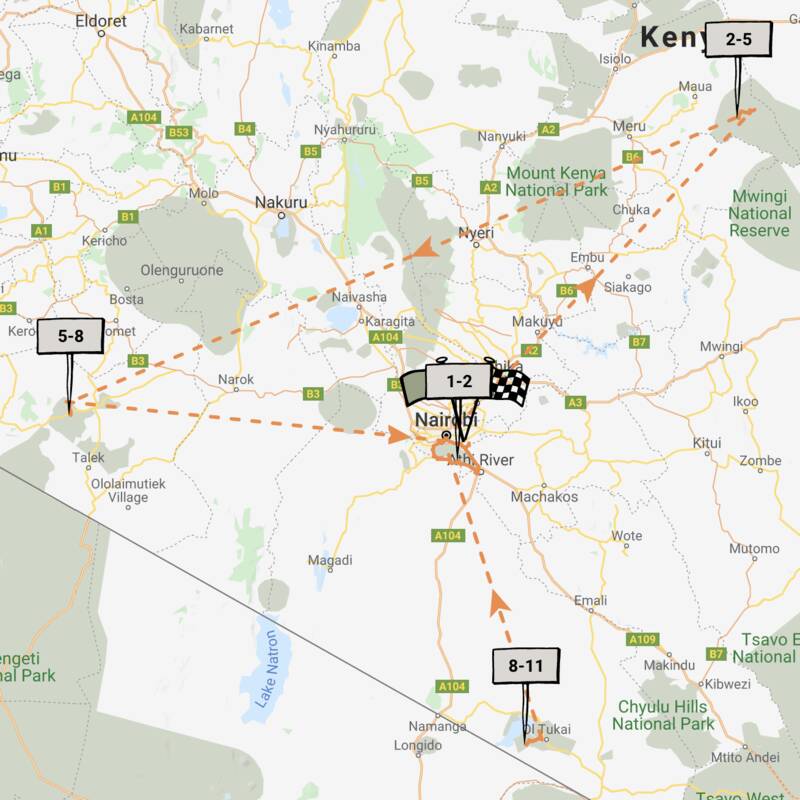
Black Kite Fly-in Safari
10 days • 4 locations • 1 country
NAIROBI AIRPORT TO NAIROBI AIRPORT
Explore Kenya in-depth with visits to Nairobi and Meru national parks, the Mara Conservancies and Amboseli. Nestled in remoter regions, four camps provide fantastic access to rich game, a range of activities and beautifully diverse landscapes.
Visiting Nairobi, Mara Conservancies and 2 other areas
US$10,410 - US$14,150 per person
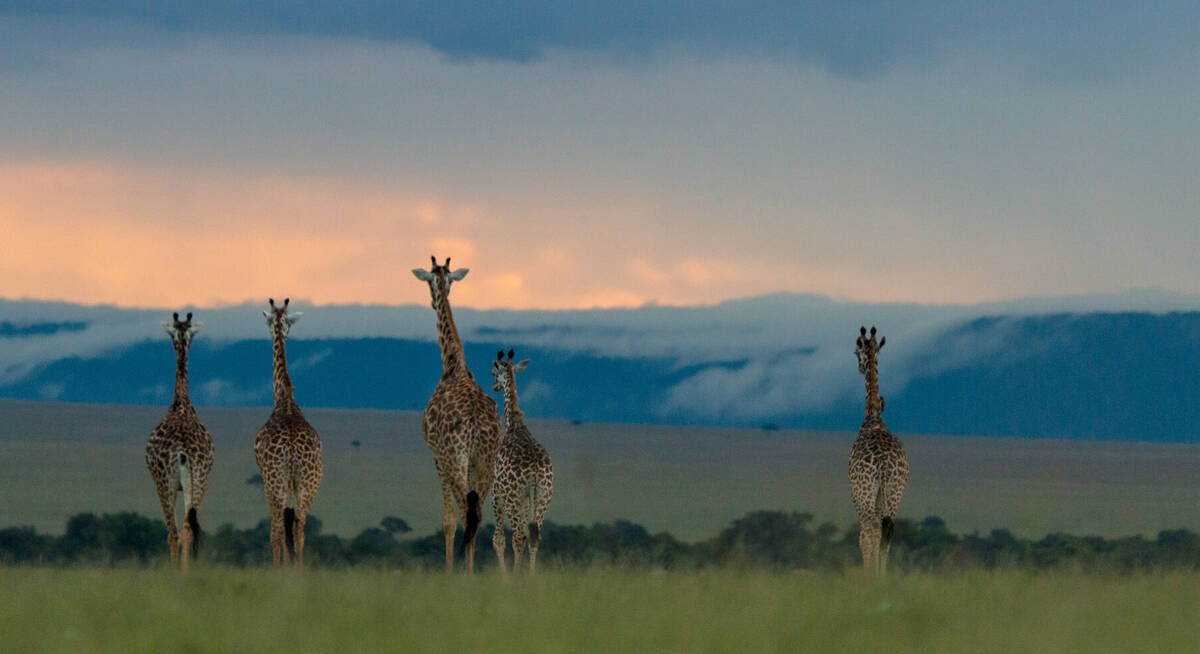
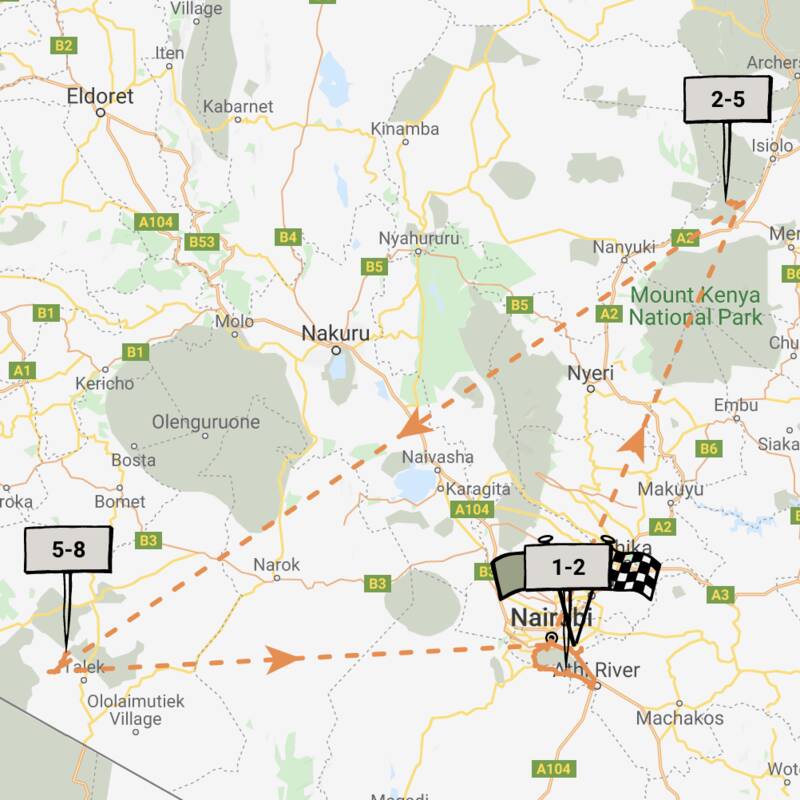
African Finfoot Fly-in Safari
7 days • 3 locations • 1 country
NAIROBI AIRPORT TO NAIROBI AIRPORT
After a unique start in Nairobi National Park, classic, luxurious camps combine for a high-end and exclusive safari in fantastic wildlife destinations.
Visiting Nairobi, Laikipia and 1 other area
US$11,230 - US$17,340 per person
The Emakoko: Our full report
The Emakoko is a unique, owner-managed lodge that opened in 2012.
It straddles the southern boundary of Nairobi National Park, marked by the gorge of the Mbagathi River in an area where three rivers converge. The lodge has the national park's much underrated game-viewing areas on its doorstep and easy access to both Nairobi's airports.
The Emakoko is personally supervised by the owner-managers and spreads along the base of a steep cliff. It is named after the river that flows into the Mbagathi from the south, less than 1km upstream from the lodge. The lodge is technically unfenced overall, though a discreet electric fence has been erected at the back of the property to protect guests from wandering hippos.
After a short, bumpy descent from the main park road (a deliberate deterrent to put off accidental visitors), all guests arrive at the lodge's parking area inside the national park on the north bank of the Mbagathi. From here, you walk across a rather fine, wooden footbridge to the lodge reception and central areas, including a lovely lounge, terrace and dining room, and access to the swimming pool, all of which lie on the south bank of the river.
The thatched open-fronted main area is warm and inviting, with vases of fresh roses dotted around. Polished wooden floors lead from a comfortable lounge area, with warm orange and brown sofas and armchairs, into the dining area, where individual tables are laid. Here is also a small curio shop selling local arts and crafts.
The pool is a good size, though unheated – which at Nairobi's altitude of more than 1,600m can make it chilly, especially in the slightly cooler season between July and October. It is surrounded by sunloungers and umbrellas, making it a relaxing spot in the heat of the day.
The Emakoko has ten, cottage-style rooms, with five near the main central areas. One pair of cottages has adjoining rooms. Five of the rooms are up the cliff face, accessed by steep footpaths, and perching precariously above the gorge, with glorious views across the trees and river and into the national park.
Inside, the very large, light rooms are comfortably furnished with armchairs, sofas and footstools, and small safes. Twin beds can be combined into a full double with a converter mattress. The big, open-plan bathrooms have walk-in showers, bathtubs by the low-level windows, twin washbasins and designer toiletries. Hot water is always available. The private verandas have directors' chairs and drinks tables.
It's worth noting that many of the rooms are located up the cliff side. A nifty little funicular lift makes the highest rooms easier to access, however, we recommend that those with mobility issues request a room lower down the hill and closer to the main area. The highest room is up about 140 steps (in practice, most quests only experience those on the way down, if they choose, otherwise using the lift), but it does have the best views as a reward.
The private house at the top of the cliff has two double bedrooms (extra beds can be added), a private dining room and a small pool. This is a perfect option for families or groups travelling together. The standards and presentation of the private house match those of the main lodge rooms.
An unexpected bonus at The Emakoko is the range of activities on offer. The rates here include Nairobi National Park entrance fees as part of the stay (valid for 24 hours) and the lodge's owner-managers are very supportive of the park and automatically offer game drives (both morning and evening if you like) as part your stay.
Nairobi National Park, now partly encircled by burgeoning Nairobi but still unfenced along its southern boundary, is hugely underrated. Many visitors pay a fleeting visit if they have a day to kill in Nairobi, but The Emakoko's location allows you to dip in and out of the park whenever you like during your stay, or perhaps set off at dawn with a picnic breakfast, and return to the lodge for lunch.
The 117km² park features nearly all the plains wildlife of the East African savannah, with the exception of elephants. There's a good number of lion, leopard and lots of buffalo, giraffe, zebra, eland and wildebeest. The stand-out animals in the park, however, are rhinos: in fact you probably have a better chance of seeing both species – surly, browsing black rhinos and more placid, grazing white rhinos – than in any other Kenyan park or sanctuary. In the course of four recent drives we saw more than a dozen rhinos, including a huge-horned mother and baby black, and a large group of whites, again with young. Nairobi National Park can be very rewarding in other respects, too: on a recent trip we saw two black-backed jackals, a small herd of hartebeest, herds of Grant's gazelle, two eland, and ostrich, all in the space of 20 minutes – and that was just on the transfer back to the airport! On our most recent game drive in the park, we also caught sight of a lioness and seven cubs attempting a wildebeest kill as the sun was setting.
It is worth noting that the park is best visited mid-week when there are not many other vehicles around. Due to the great game viewing and unrivalled accessibility, Nairobi National Park is very popular amongst residents of Nairobi who visit on the weekend.
Although night game drives as such are not permitted, transfers to and from the airport are allowed after dark, as are sundowner excursions at dusk.
Visits to the David Sheldrick Wildlife Trust elephant and rhino orphanage are easily arranged, and guests frequently opt to be sponsors (US$50, by online pre-arrangement), which allows them to visit the orphanage between 4.30 and 5.30pm – a quieter time when non-sponsors are not admitted and you can spend time with the elephants as they are preparing to sleep.
As well as visits to the park and the elephant orphanage, Emakoko guests can take escorted walks around the lodge and gorge – with a specialist guide if you like: for example lodge owner Anton Childs, who is one of Kenya's most experienced herpetologists, or one of the lodge's birding guides.
General Nairobi excursions are also included in the rates at The Emakoko, though entrance fees are extra, and you need to be aware of travel times, which can be quite long, depending on traffic (the lodge can advise). Examples include the giraffe centre at Giraffe Manor, Kazuri Beads in nearby Karen (which employs over 340 women), and the Karen Blixen Museum.
Back at the lodge, you can take advantage (at extra charge) of an in-room massage with a trained masseuse, using a mobile table.
There are two options for staying at The Emakoko: lunch, dinner, bed and breakfast (full board - check-in 11:00, check-out 10:00); and lunch and dinner (day room - check-in 11:00, checkout 18:00). If you arrive too late for dinner, there will be a late snack meal, and a lower rate if you stay for a second night. It's worth being aware that early morning arrivals can only be booked with a supplementary "Early Bird" fee. Please also note that arrival and departure times through the gates of Nairobi National Park are logged to the minute. Daily park fees are payable for every 24 hour period, and a further fee is payable as soon as you break into the next 24 hours.
Geographics
- Location
- Nairobi, Kenya
- Ideal length of stay
- 2 nights
- Directions
- Transfers from JKIA or Wilson Airport – or anywhere else in Nairobi – are included in the price. Night transfers go only via the East Gate of the national park. The journey time from the lodge to the airport perimeter, or vice versa, can be around 40 minutes to an hour – depending on traffic.
- Accessible by
- Fly-and-Transfer
Food & drink
- Usual board basis
- Full Board & Activities
- Food quality
- The Emakoko ‘aims to have the best food in Nairobi' and they are certainly making a big effort to offer meals that are really imaginative, well-presented and appetising. Lots of fresh produce is the rule. The head chef here came from Ol Donyo Lodge, which the owners used to manage, and the chefs have recently undergone further training and a complete menu revamp.
We have always found the food at the lodge exceptionally good across multiple stays.
Breakfast is always a good mix of fruit and cereals with a full cooked selection available.
For lunch, we have had chilled avocado soup with fresh focaccia and then red snapper accompanied by feta and aubergine cous cous and green salad. An apple and chocolate tartlet finished things off. It was all very light and delicious, with plenty available.
On a previous visit when we arrived very late in the evening off an international flight, no food was expected. So when we were offered a fantastic light dinner consisting of a butternut soup followed by an antipasti spread we were delighted. Roasted red peppers and courgette, tomato and mozzarella salad and a selection of ham and salami were all on offer. Our pudding was light and refreshing melon balls. A typical evening meal at the lodge will be a more formal three-course affair. - Dining style
- Individual Tables
- Dining locations
- Indoor and Outdoor Dining
- Further dining info, including room service
- Yes, on verandas, at no extra charge.
- Drinks included
- Included (premium wines and spirits extra)
Special interests
- Family safaris
- As the Emakoko’s owners have small children themselves, this upmarket, spectacularly set Kenya lodge is well-suited for family safari holidays with children of all ages. There are two cots, a nice pool and the Nairobi National Park nearby.
- See ideas for Family safaris in Kenya
- Birdwatching safaris
- The Emakoko stands out on any Kenya bird trip, firstly for its great viewpoint, from which more than 50 birds can be seen, overlooking Nairobi National Park. Then the park itself offers excellent birding with more than 500 recorded species.
- See ideas for Birdwatching safaris in Kenya
- Wildlife safaris
- Anton Childs, co-owner of The Emakoko is one of Kenya’s most experienced herpetologists and will happily take guests on escorted reptile and amphibian walks around the lodge. We saw a young python inching across the earth road one evening, just outside the lodge.
- See ideas for Wildlife safaris in Kenya
Children
- Attitude towards children
- 'No problem; our children grew up here'
- Property’s age restrictions
- None
- Special activities & services
- There are no special activities for children, but the lodge has a nice pool, though young children will need supervision as there is no lifeguard. The Emakoko can organize early dinners too.
- Equipment
- Two cots.
- Generally recommended for children
- Yes, but little ones will need lots of supervision, and one of the ground-level rooms would be the obvious choice. The cliffside rooms are not safe for children under 6.
- Notes
- The owner-managers, who have a young family of their own, are welcoming to children.
Our travellers’ wildlife sightings from The Emakoko
Since mid-2018, many of our travellers who stayed at The Emakoko have kindly recorded their wildlife sightings and shared them with us. The results are below. Click an animal to see more, and here to see more on our methodology.

86% success

86% success

79% success

77% success

74% success

73% success

62% success

54% success

49% success

14% success

5% success

5% success

2% success

2% success

0% success
Communications
- Power supply notes
- There is 24-hour power throughout the lodge with British-style 3-pin plugs in the rooms.
- Communications
- Cellphone coverage is available around the lodge, but can be weak in some areas. There's WiFi in the lounge, which also has signal in the rooms.
- TV & radio
- No, but the staff canteen has DSTV, and guests could go there for a big match or other sporting event.
- Water supply
- Borehole
- Water supply notes
- There is running hot and cold water in all of the rooms. Reverse osmosis is in place to provide filtered drinking water and all of the water is heated via solar.
Sustainability
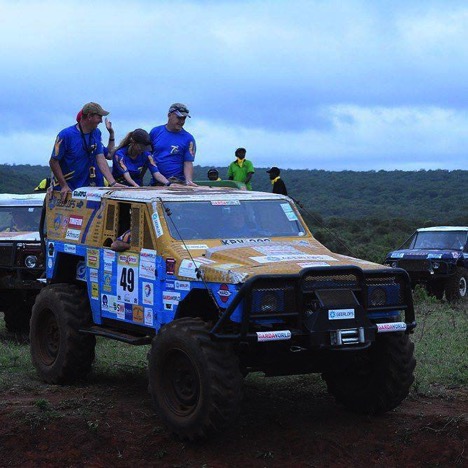
Fighting for community-wildlife coexistence
Following a 20 minute drive from Nairobi airport, The Emakoko is located on a gorge on a border of Nairobi National Park, Kenya’s oldest national park, and offers tourists an authentic wilderness safari experience despite its close proximity to the city. With humanity pressing around every corner of it, what makes the lodge unique is its effort towards community-wildlife coexistence.
To help stop the human/wildlife conflict, Emakoko partners up with Nairobi National Park’s managing association, Kenya Wildlife Service, and Kitengela Landowners Association to distribute some of its revenue straight into community projects. The lodge is especially involved in the lion lighting scheme, which aims to deter predators from attacking the community Bomas. To date, Emakoko has put up 18 sets of lion lights in the community, lighting up 8 Bomas in the area.
Additionally, every year the owners participate in the Rhino Charge, a rally competition held in the most remote parts of Kenya to raise money for fencing around some of Kenya's fragile ecosystems, and assist the local communities wherever the Charge is run. Also, the lodge has purchased, constructed and erected three rhino towers to assist Kenya Wildlife Service with observation points over the park, thus supporting their Rhino ear-notching program for identification.
The initiative has proven successful, receiving support from tourists as well, as one repeat guest has recently donated binoculars to the Rhino Units in the park.
See more great sustainability projects in Kenya
Health & safety
- Malarial protection recommended
- Yes
- Medical care
- There's a first-aid kit at the lodge and in all vehicles, with five members of staff trained in first aid to an occupational level. The closest hospital is Karen hospital, which could be reached in 35 minutes, but all major hospitals in Nairobi would be accessible within about an hour. Medical evacuation would also be possible by helicopter.
- Dangerous animals
- High Risk
- Security measures
- There are no locks on doors, but the lodge is very secure, with askaris on duty day and night. There are also armed Kenya Wildlife Service officers in the area of the staff camp.
- Fire safety
- The lodge has deliberately used as few flammable materials as possible in construction. There are fire extinguishers in every room.
Activities
4WD Safari
Birdwatching
Cultural excursion
Elephant encounter
Extras
- Disabled access
- On Request
- Laundry facilities
- A full laundry service is included.
- Money
- There’s a large safe in the office, and small safes in the rooms. No currency exchange is possible.
- Accepted payment on location
- Cash payments may be made in US dollars, euros, pounds sterling or Kenyan shillings. Visa and Mastercard are accepted, with a 5% surcharge.
Plan and book your trip with Expert Africa
All of our trips are tailor-made, so we'll always adapt them to suit you. Talk to an Expert and let us plan and arrange your perfect trip.

Talk to an Expert
Call or email us now! We’ll match you with the Specialist in our team who is best suited to help you. Then together we can start planning your trip.

Set up your itinerary
Based on our experience and your ideas, your specialist will create a detailed, costed itinerary. We’ll refine it together, until we have a trip that you’re perfectly happy with.

Prepare for your trip
The same Specialist will make the seamless arrangements for your trip, send you detailed travel documents, and be available to answer any questions before you depart.

Travel with peace of mind
After you set off, you’ll be cared for by our partners in Africa, most of whom have worked with Expert Africa for decades. And if you ever need us urgently, we’re available 24/7.

When you return
We love to learn about your trip, and so will always be grateful if you’ve the time to give feedback to your Specialist when you return.
The Emakoko's location
Look closer at the environment and surroundings of The Emakoko.
Excursions from The Emakoko
Optional extra day-trips and excursions possible whilst you're staying at The Emakoko. Talk to us: these are usually best arranged before you go.
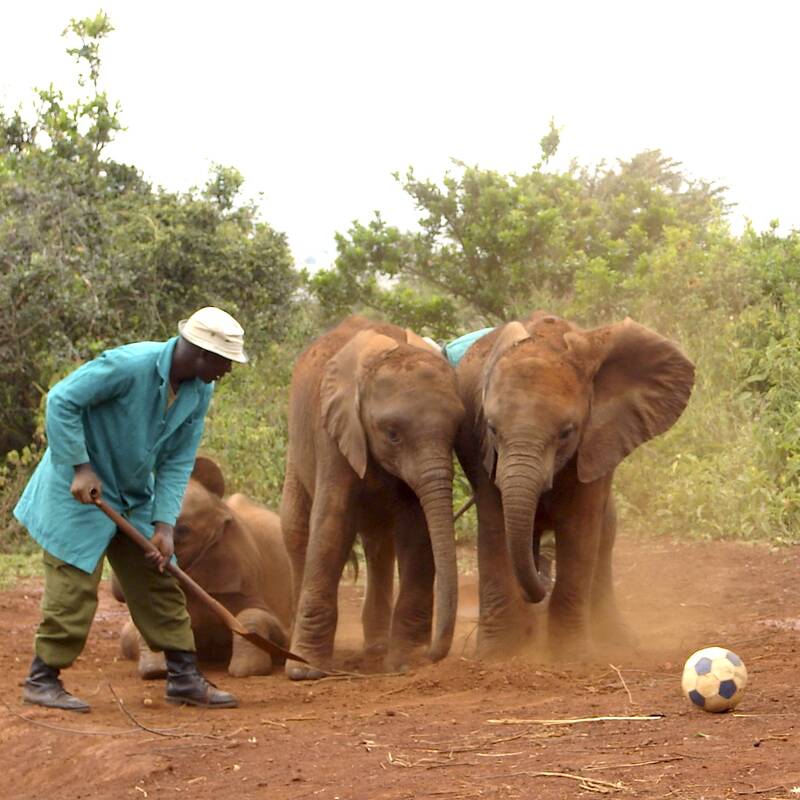
Nairobi Elephant Orphanage visit
One hour, by pre-booking only
Visit the Sheldrick Wildlife Trust Elephant Orphanage for a close-up encounter with elephant orphans – and sometimes rhino orphans. You can visit during daily between 11:00 and 12:00, or make special arrangements for a private visit in the afternoon.
More about Elephant Orphans visit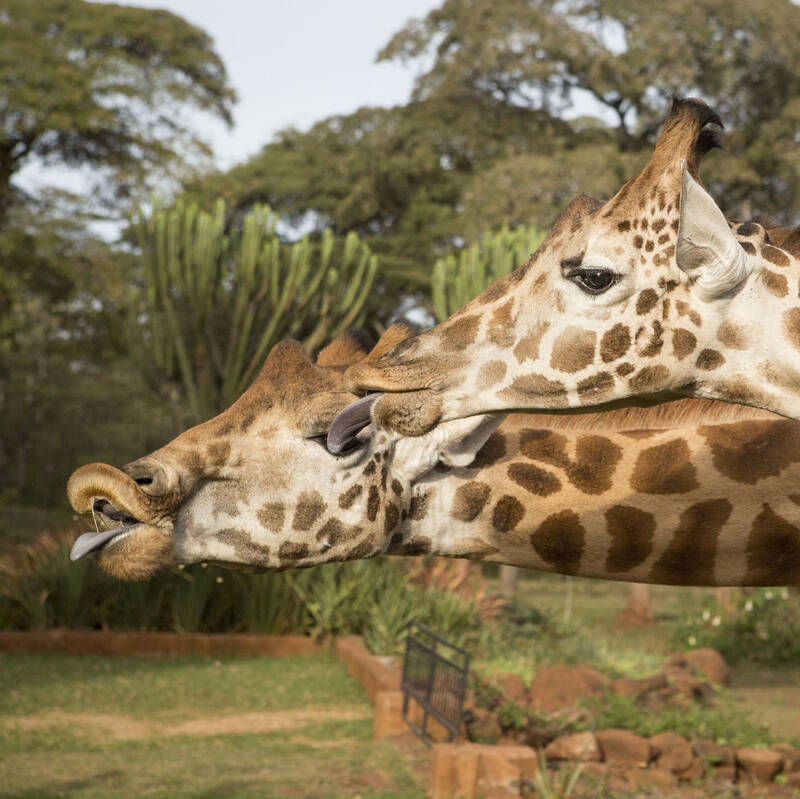
Nairobi Giraffe Centre visit
One hour visit is generally recommended
Visit the AFEW Giraffe Centre for an eyeball-level encounter with gentle Rothschild giraffes. They visit this tree-level platform to be fed pellets.
More about Giraffe Centre visit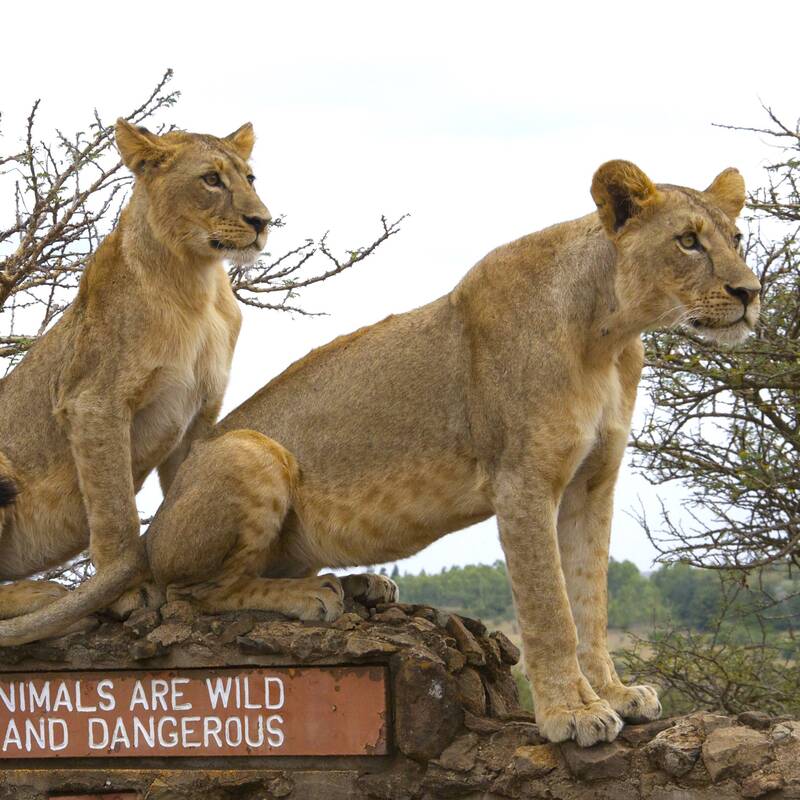
Safari in Nairobi National Park
Half day - AM or PM, or full day
It is truly remarkable that the plains and woodland of Nairobi National Park, an area of around 70km² (some 17,000 acres) should exist in a near-natural state so close to the city that in any other conurbation they would just be suburbs.
More about Nairobi Nat. Park SafariOther lodges in Nairobi
Alternative places to stay in this same area.
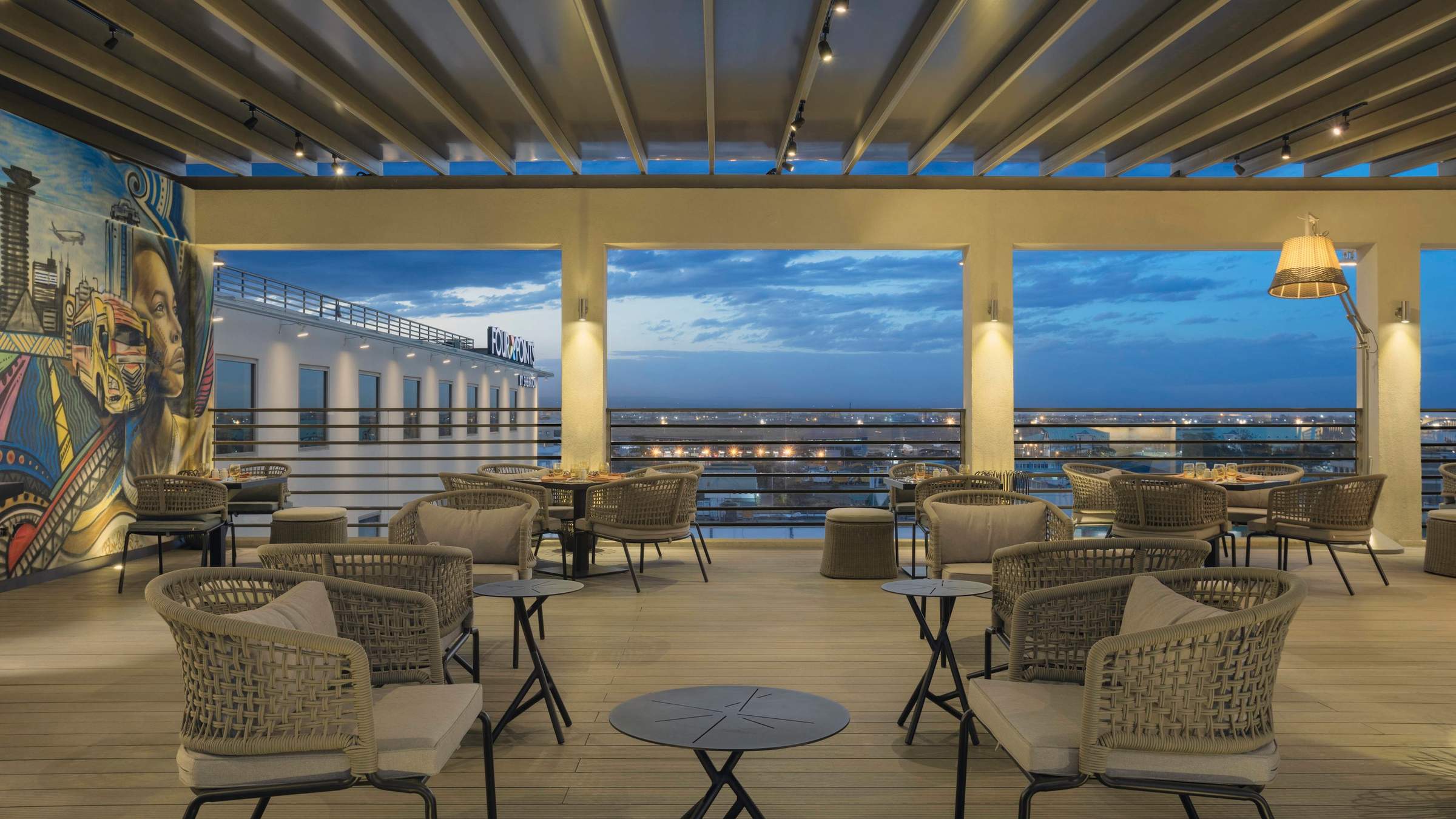
Four Points Nairobi Airport
The Four Points by Sheraton, set within the perimeter of Nairobi International Airport, is ideally located for a first or last night in Kenya.
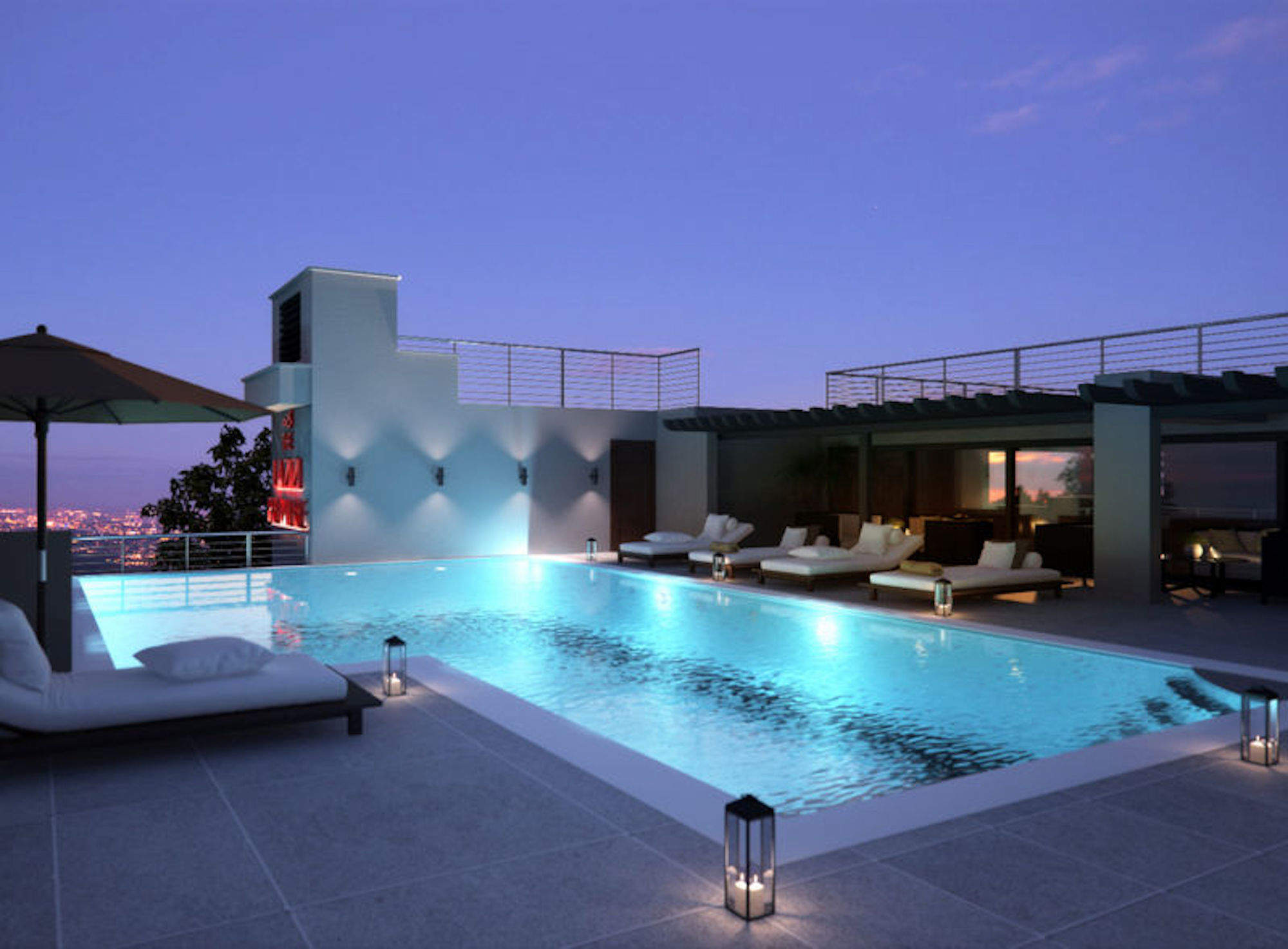
Crowne Plaza Nbi Apt
The Crowne Plaza Nairobi Airport (formerly known as the Lazizi Premiere and now part of the InterContinental Hotels Group) is the oldest hotel at Nairobi International Airport.
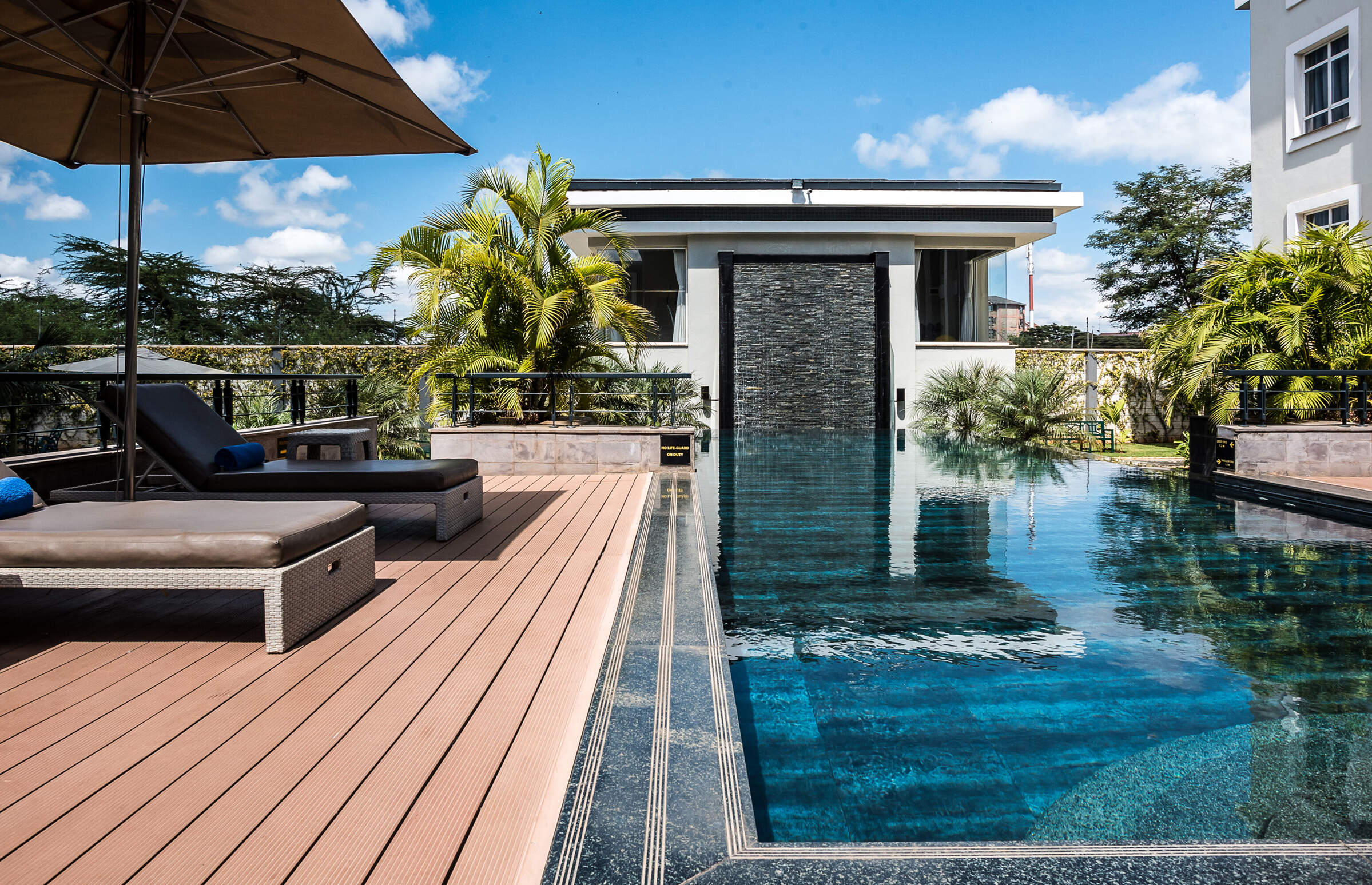
Eka Hotel
The Eka is an affordably priced business-class hotel in a relatively convenient location between Nairobi International Airport and Wilson Airport.
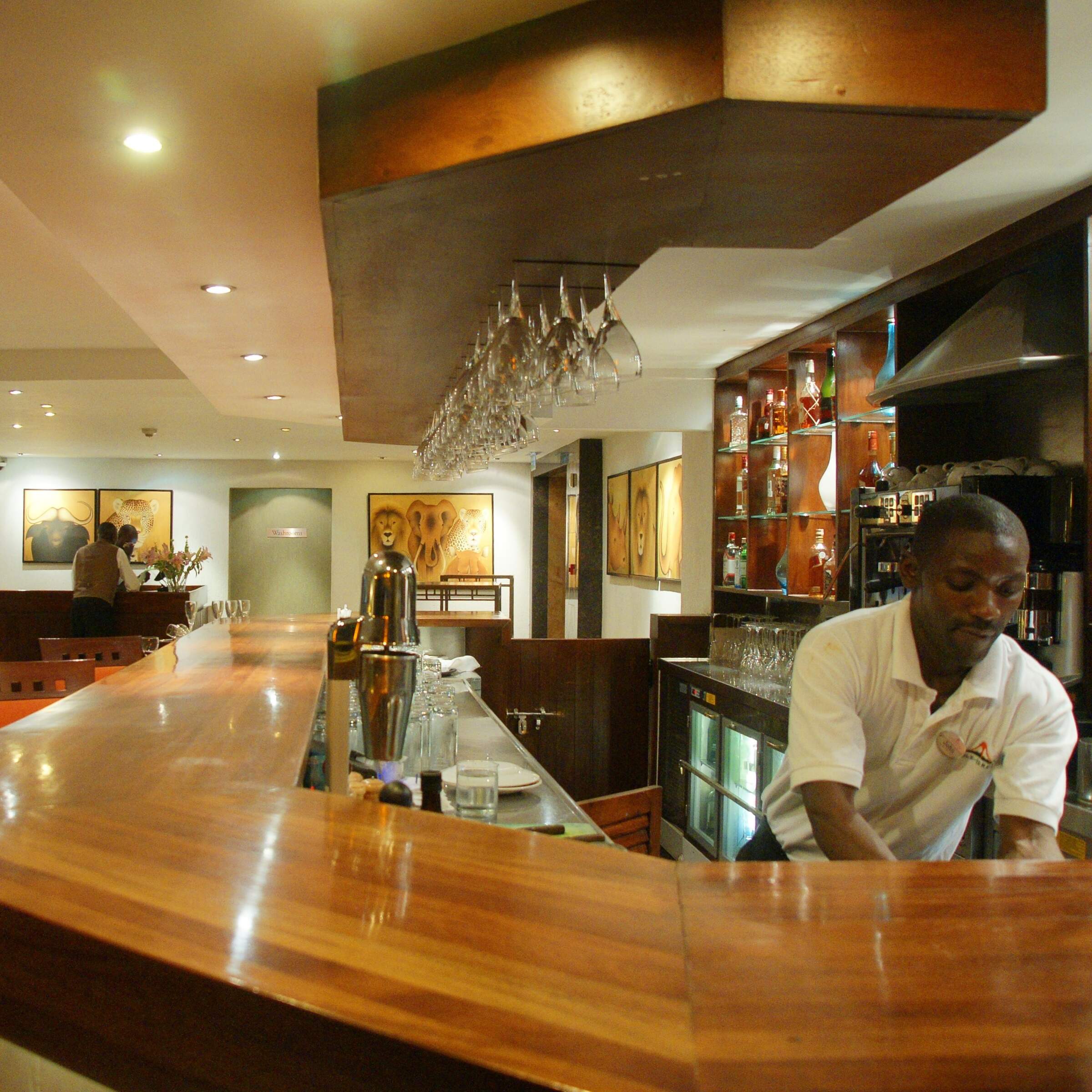
Ole-Sereni
The Ole-Sereni is a modern, stylish hotel neighbouring Nairobi National Park and located 6km from Wilson domestic airport.
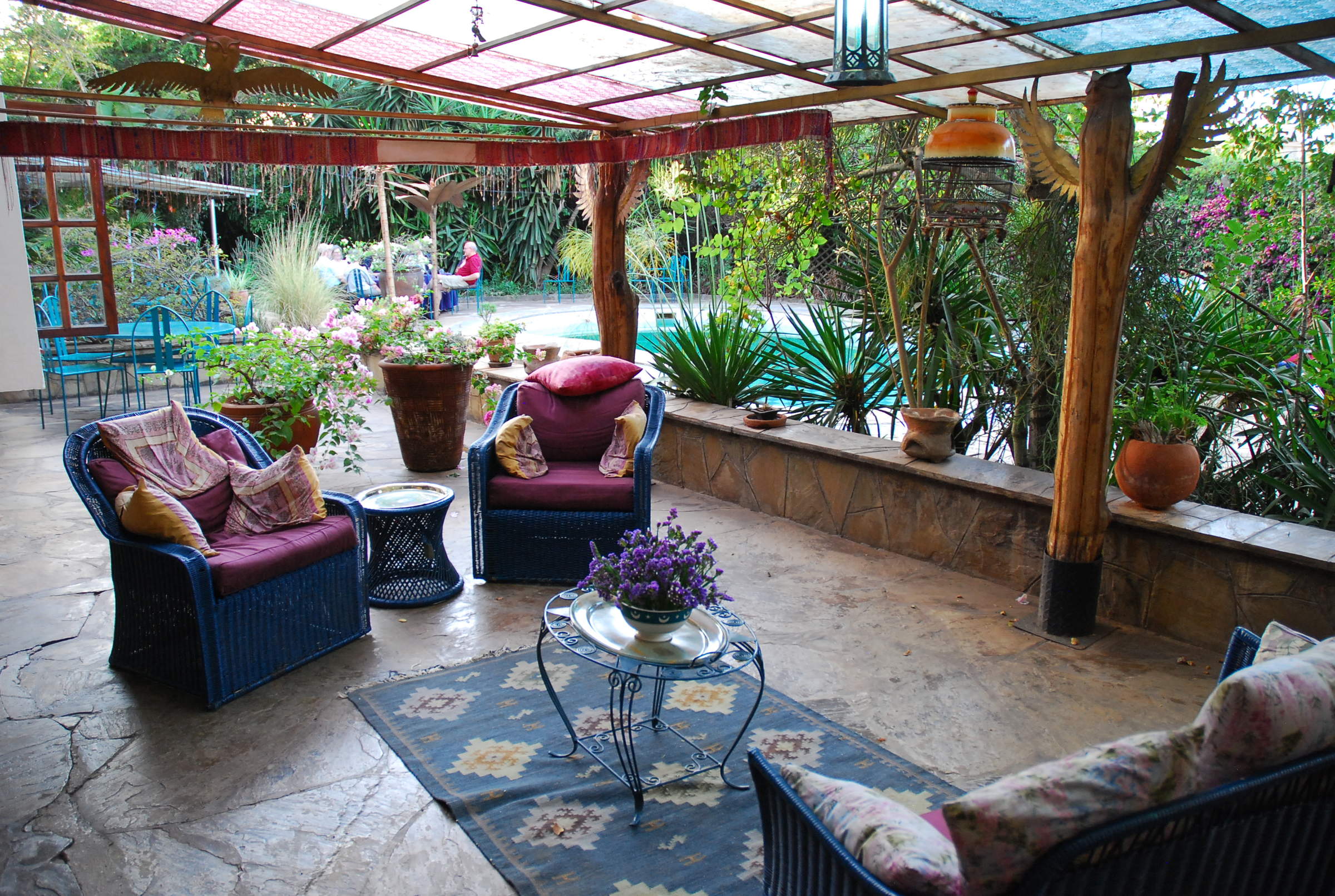
Macushla House
Macushla House is a very pleasant, small, owner-managed bed and breakfast hotel in a leafy part of southwest Nairobi, very convenient for visiting the Giraffe Centre and Sheldrick's Elephant Orphanage.
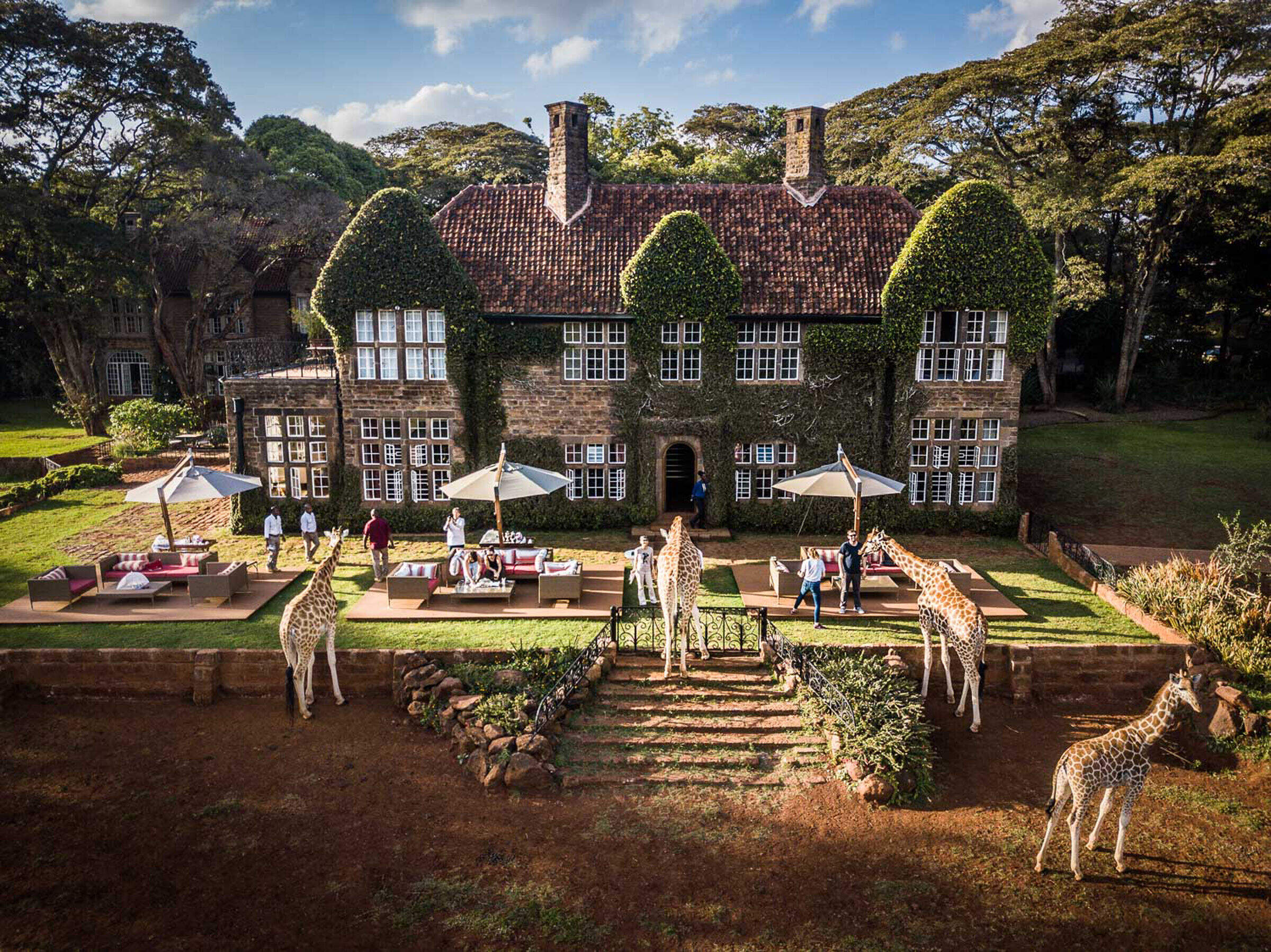
Giraffe Manor
Giraffe Manor is a unique, perennially popular lodge on the outskirts of Nairobi, offering up-close-and-personal encounters with the rare Rothschild giraffes that roam its extensive grounds.
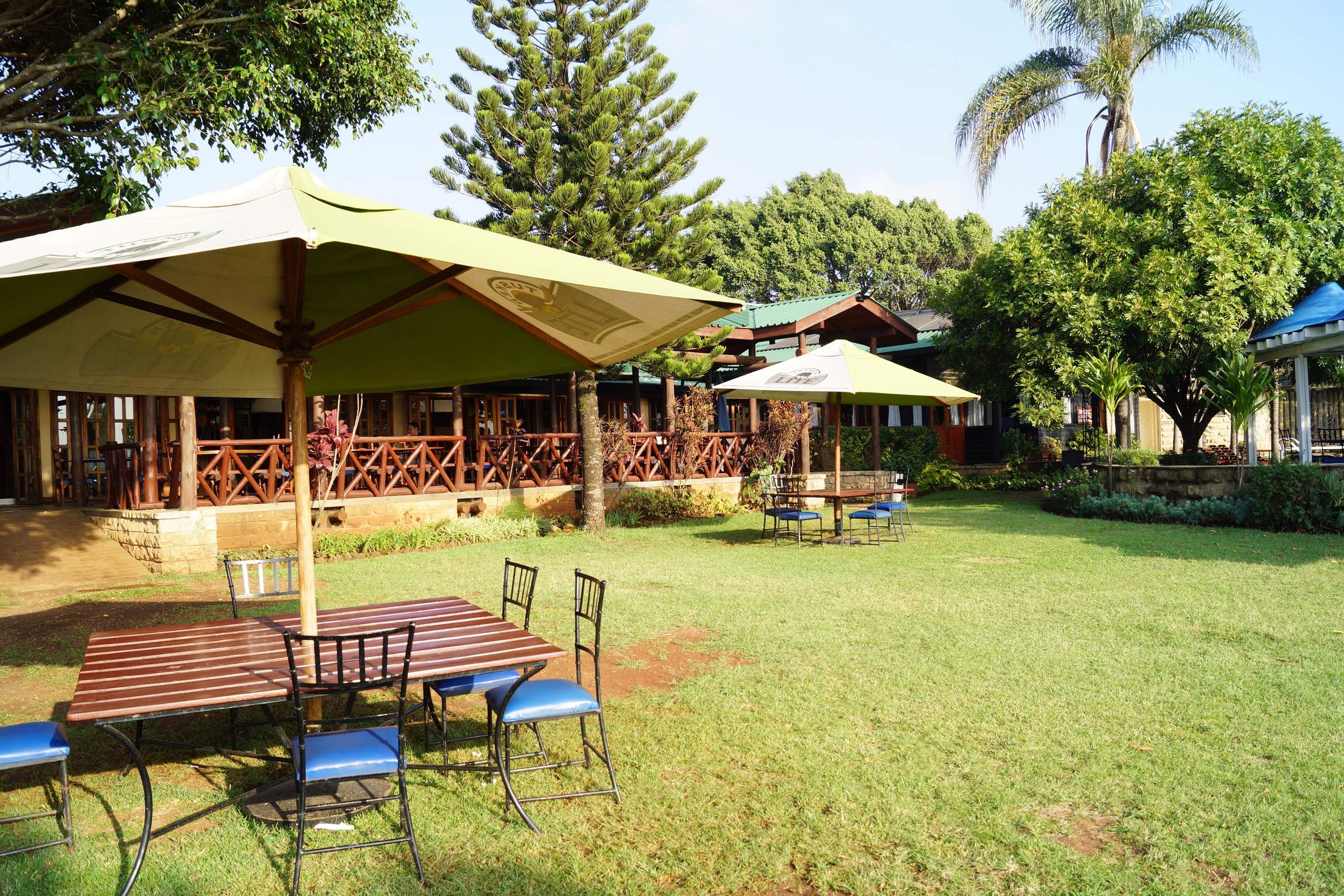
Aero Club of East Africa
The Aero Club of East Africa is a private members' club in the grounds of Wilson Airport, Nairobi, offering offering comfortable rooms and a good restaurant, bar and swimming pool to non-members.
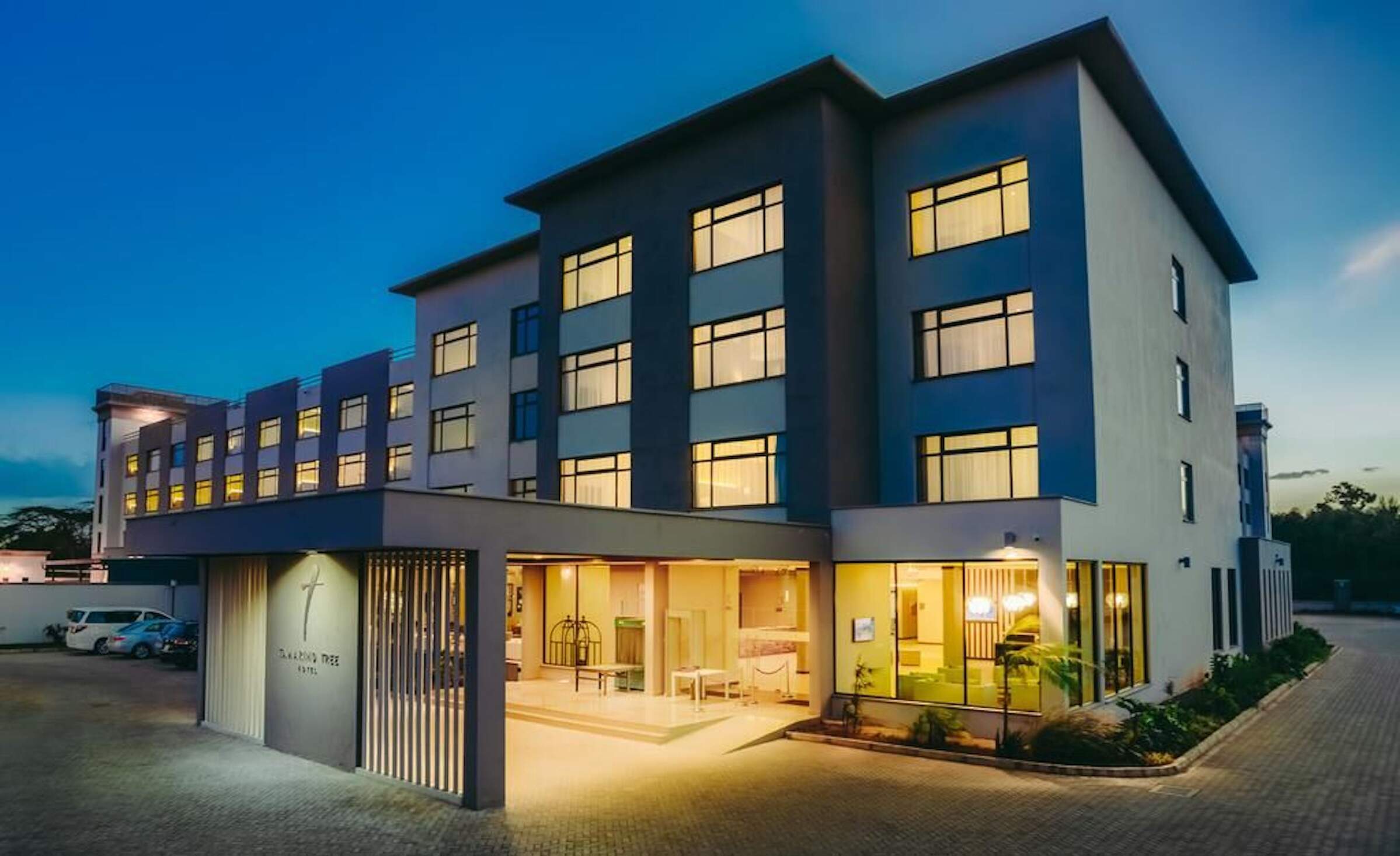
Tamarind Tree Hotel
The Tamarind Tree is a stylish international hotel in a great location next to Wilson Airport.
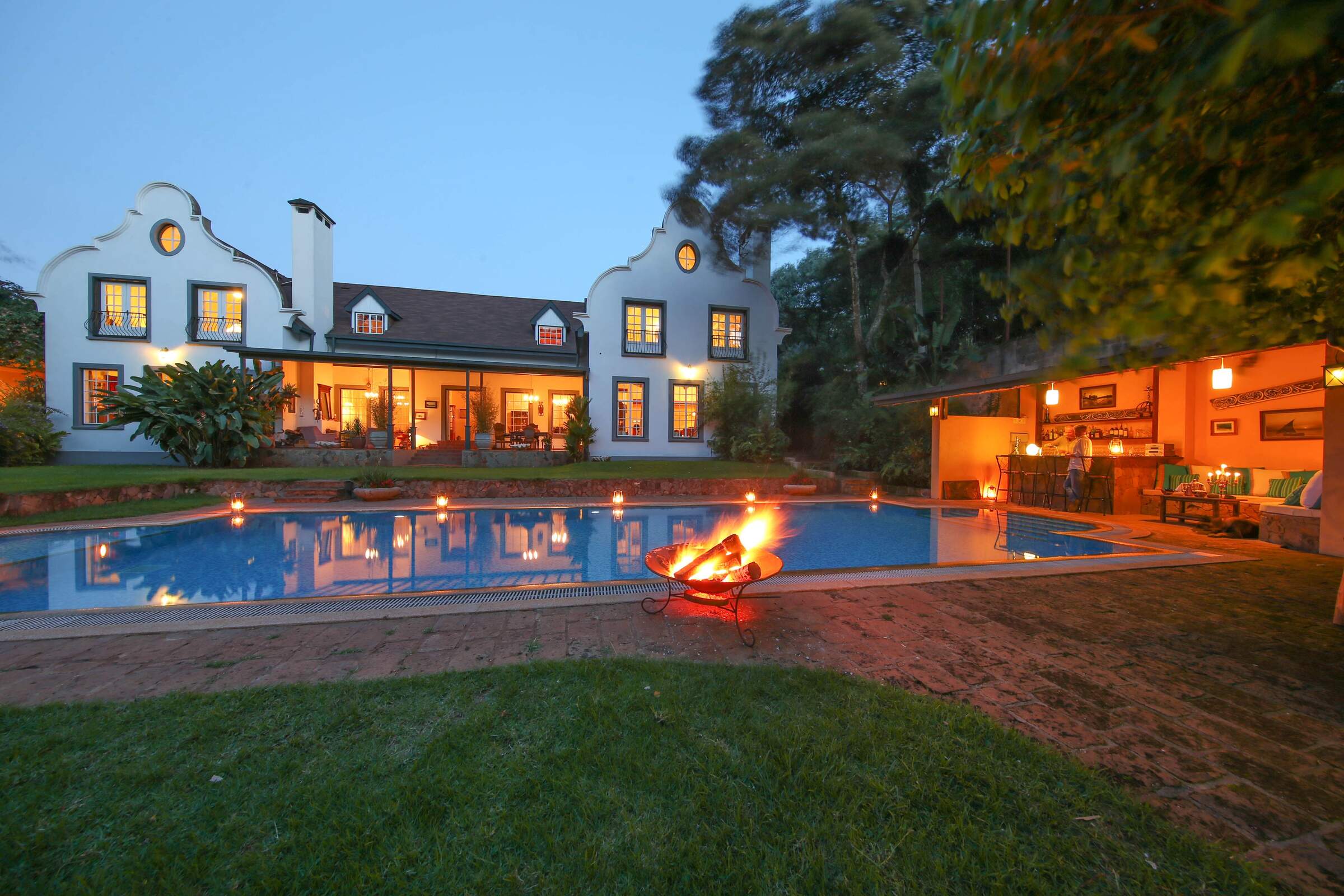
Karen Gables
Karen Gables is a small, high quality hotel in Nairobi with expansive gardens and only seven rooms.
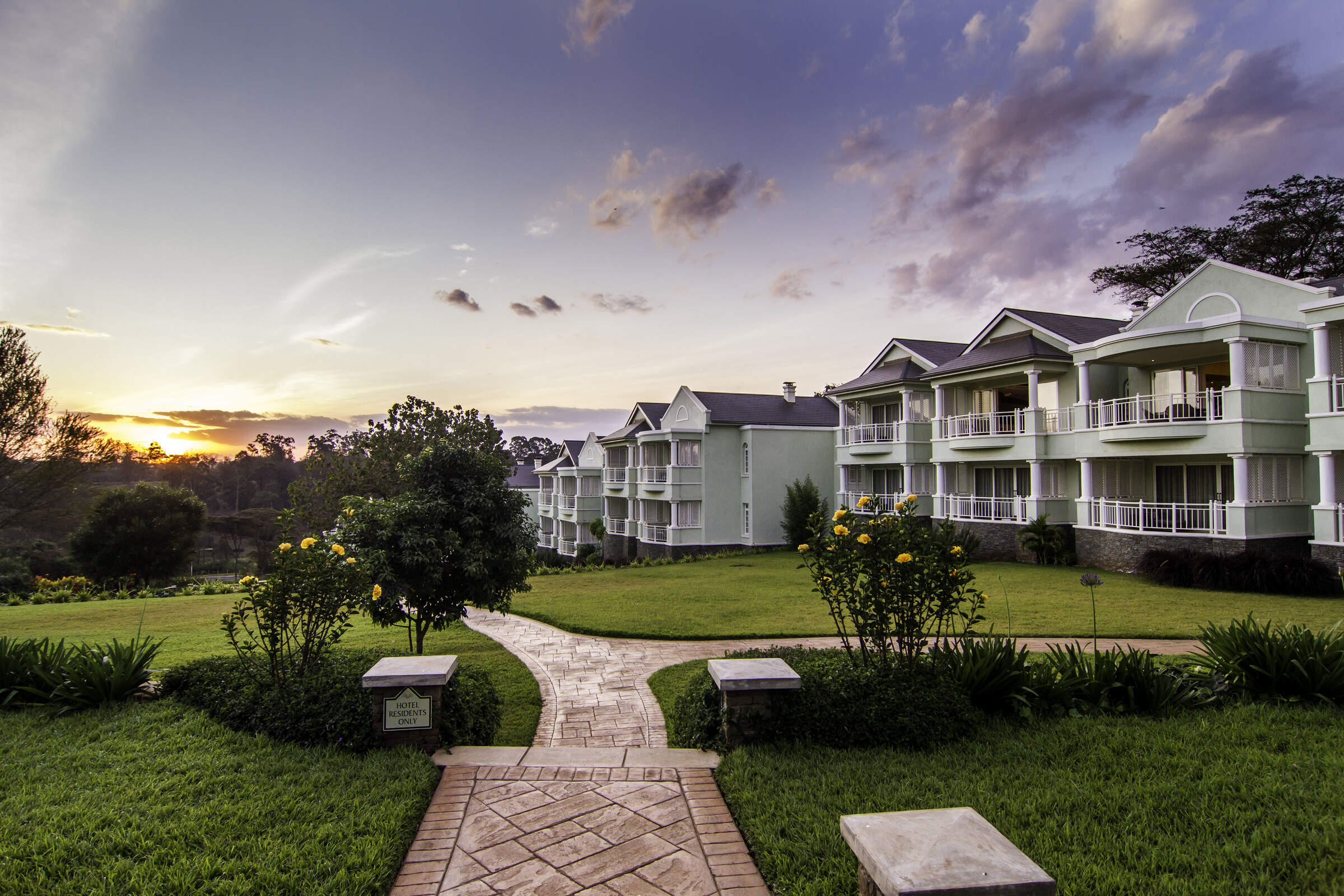
Hemingways Nairobi
Hemingways Nairobi is a luxury country-house style hotel, with a spa and gym, in the wealthy suburb of Karen.
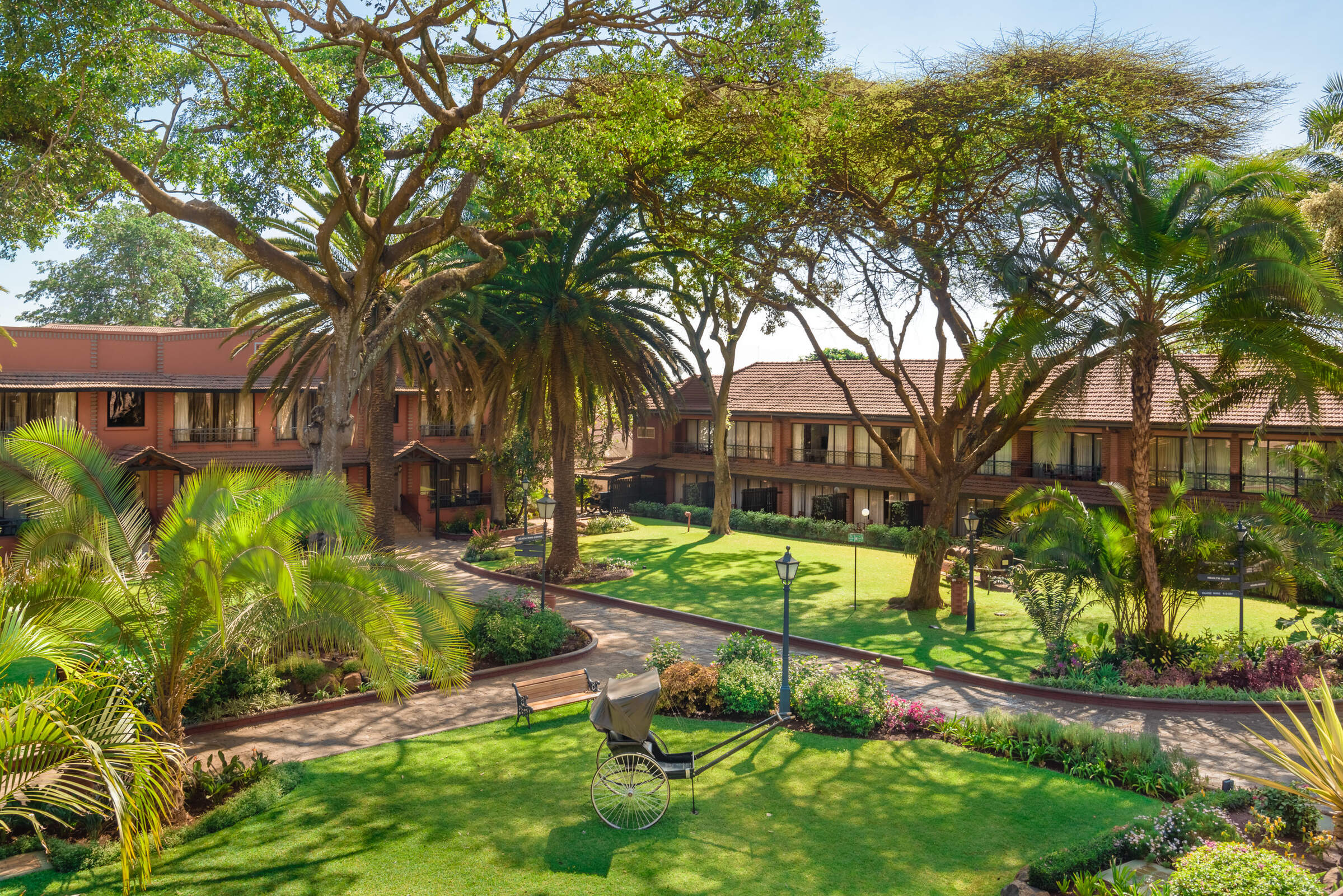
The Norfolk Hotel
The Norfolk Hotel is one of the oldest hotels in Nairobi and has a reputation for its colourful history dating back to 1904.
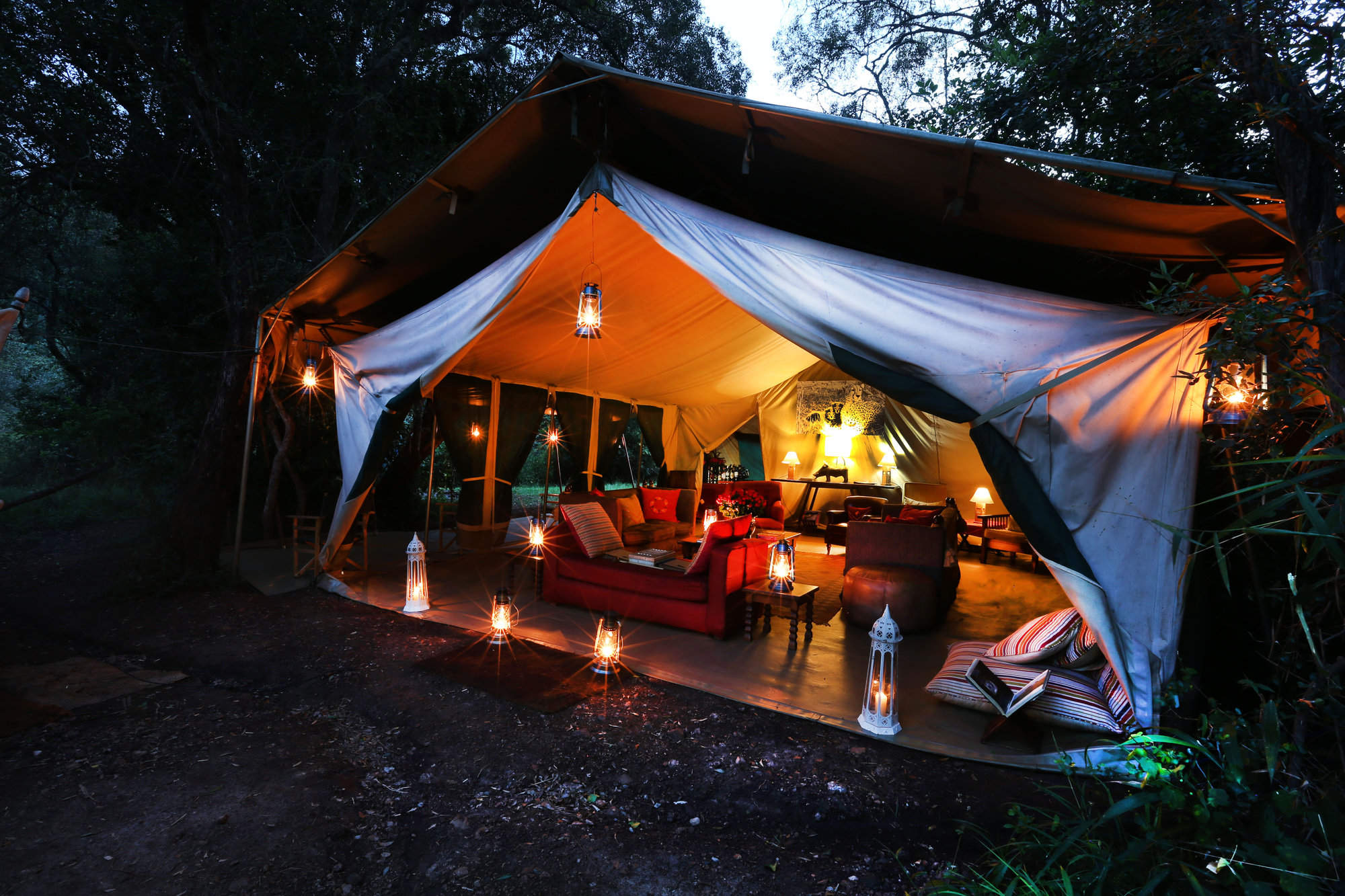
Nairobi Tented Camp
Nairobi Tented Camp is the only tented camp located inside Nairobi National Park, making it a great option for a true safari stay close to the city and airports.

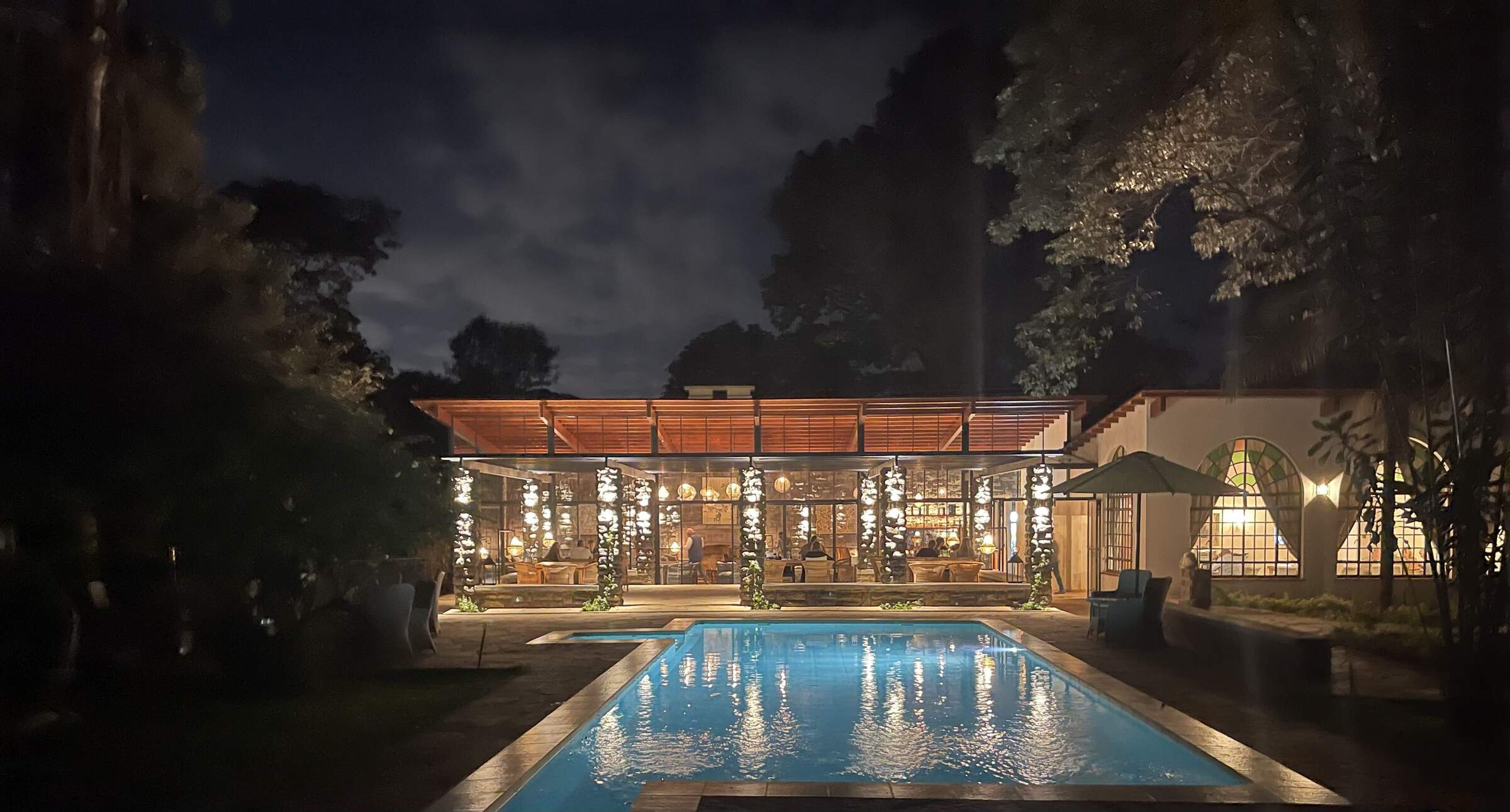
Karen Blixen Coffee Garden and Cottages
Karen Blixen Coffee Gardens and Cottages is small luxury boutique hotel located in the peaceful suburb of Karen.
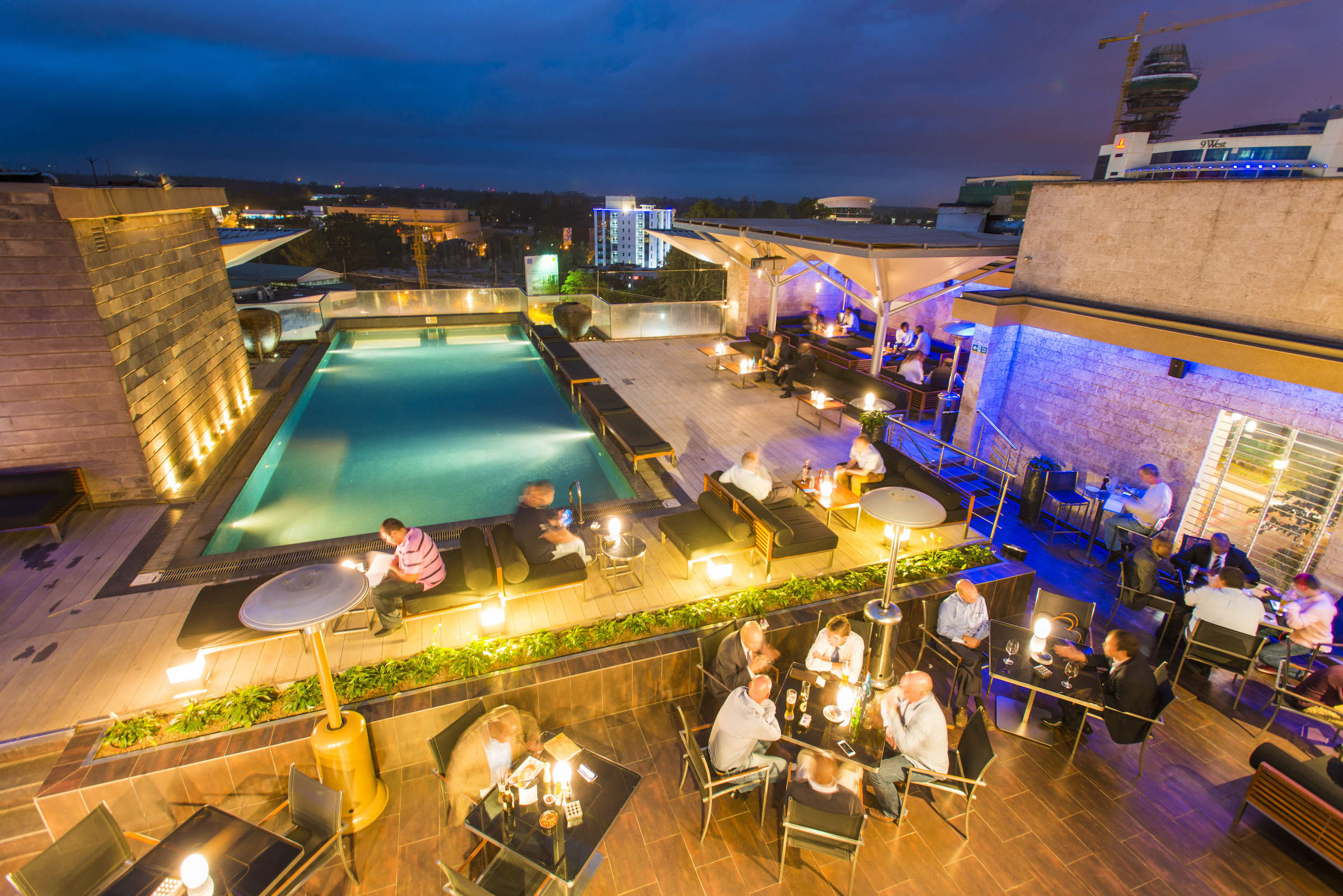
Sankara
Sankara is a strikingly built hotel in the bustling central Nairobi suburb of Westlands, primarily used as a business stay, with very good dining and leisure facilities.
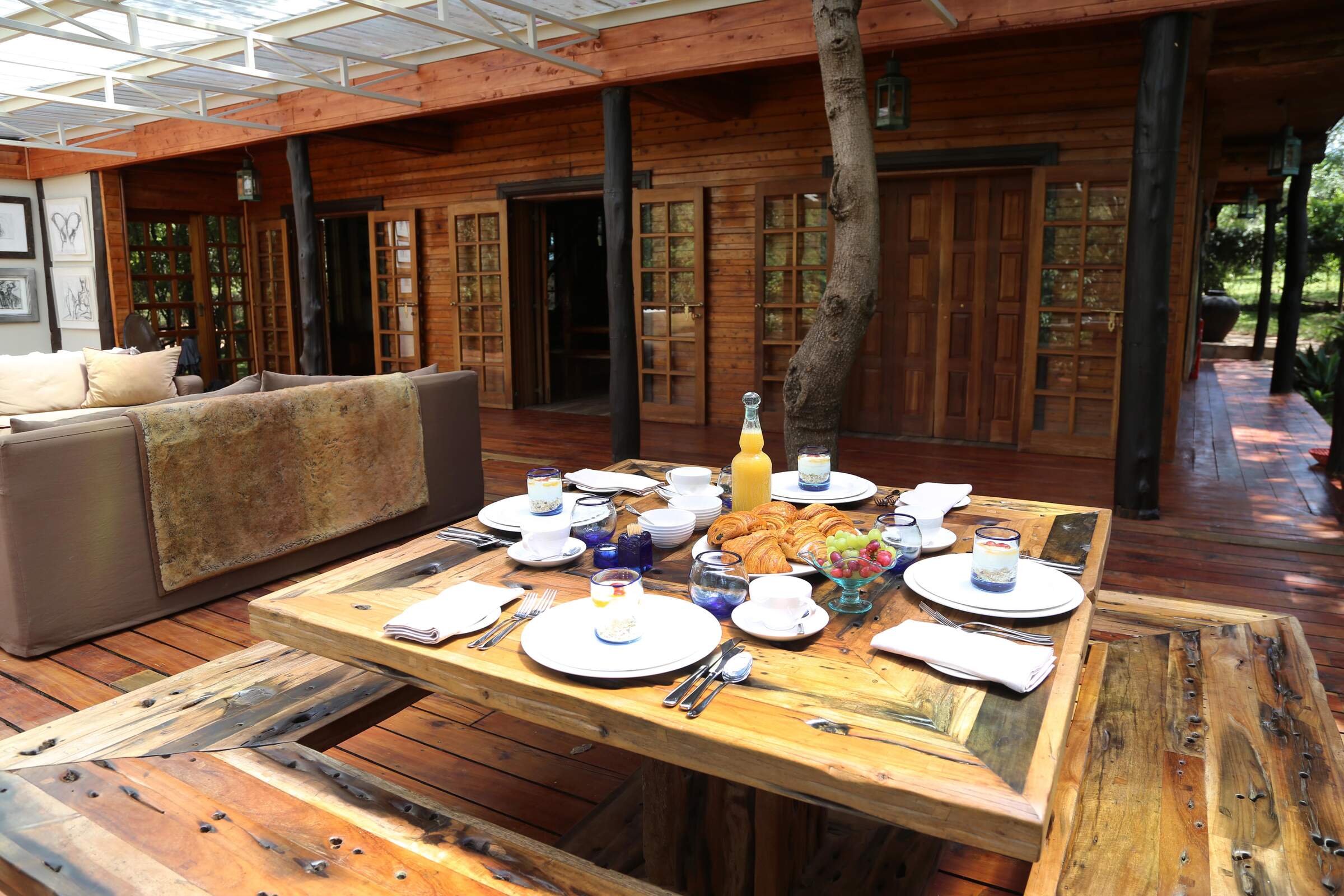
Eden Nairobi
One Forty Eight is a very stylish boutique hotel in one of the leafiest corners of the southwest Nairobi suburb of Karen-Langata. The Giraffe Centre at Giraffe Manor is just a 10-minute walk away.
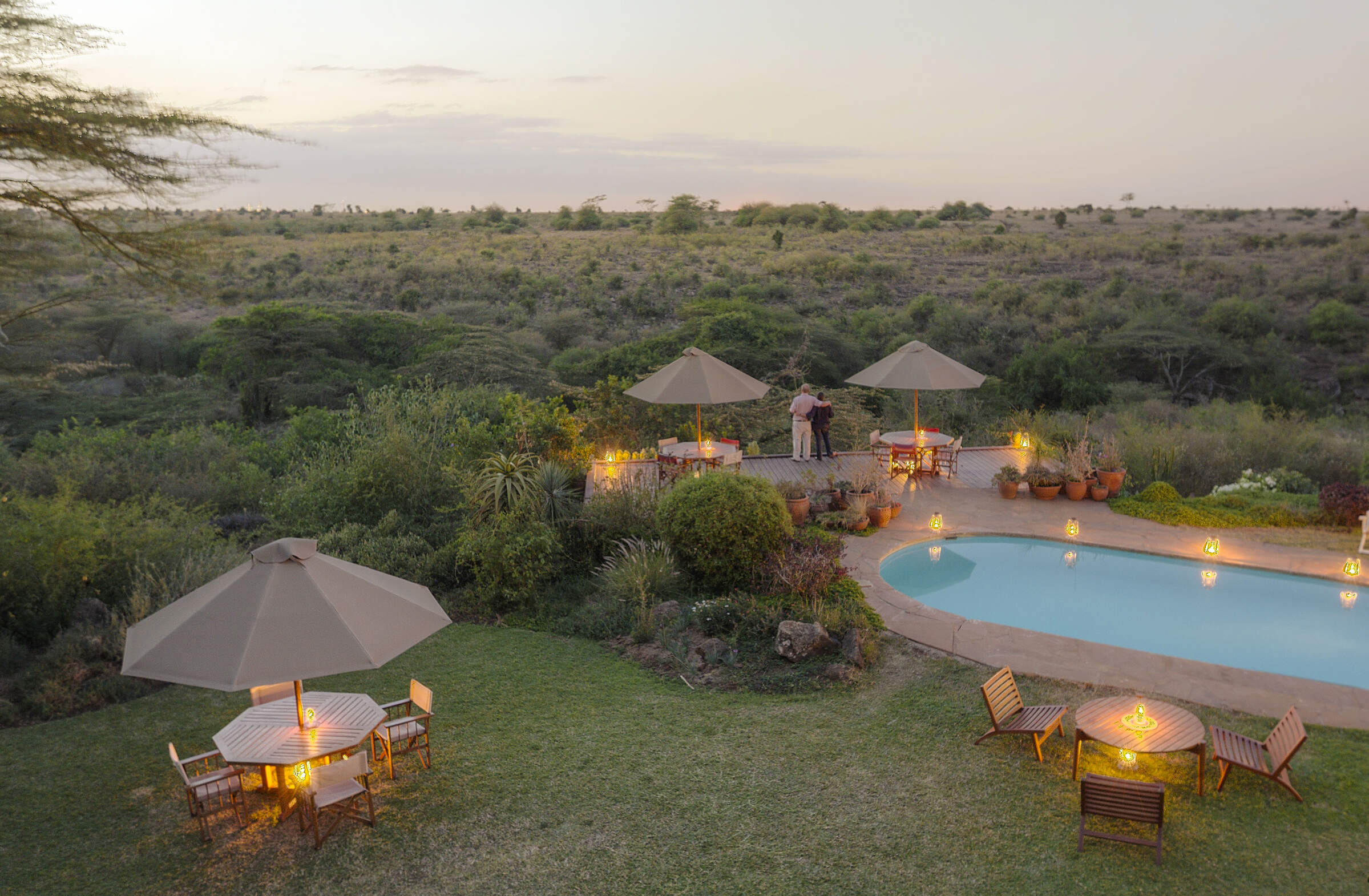
Ololo Safari Lodge
Ololo Safari Lodge and Farm is a luxury property on the southern edge of Nairobi National Park.
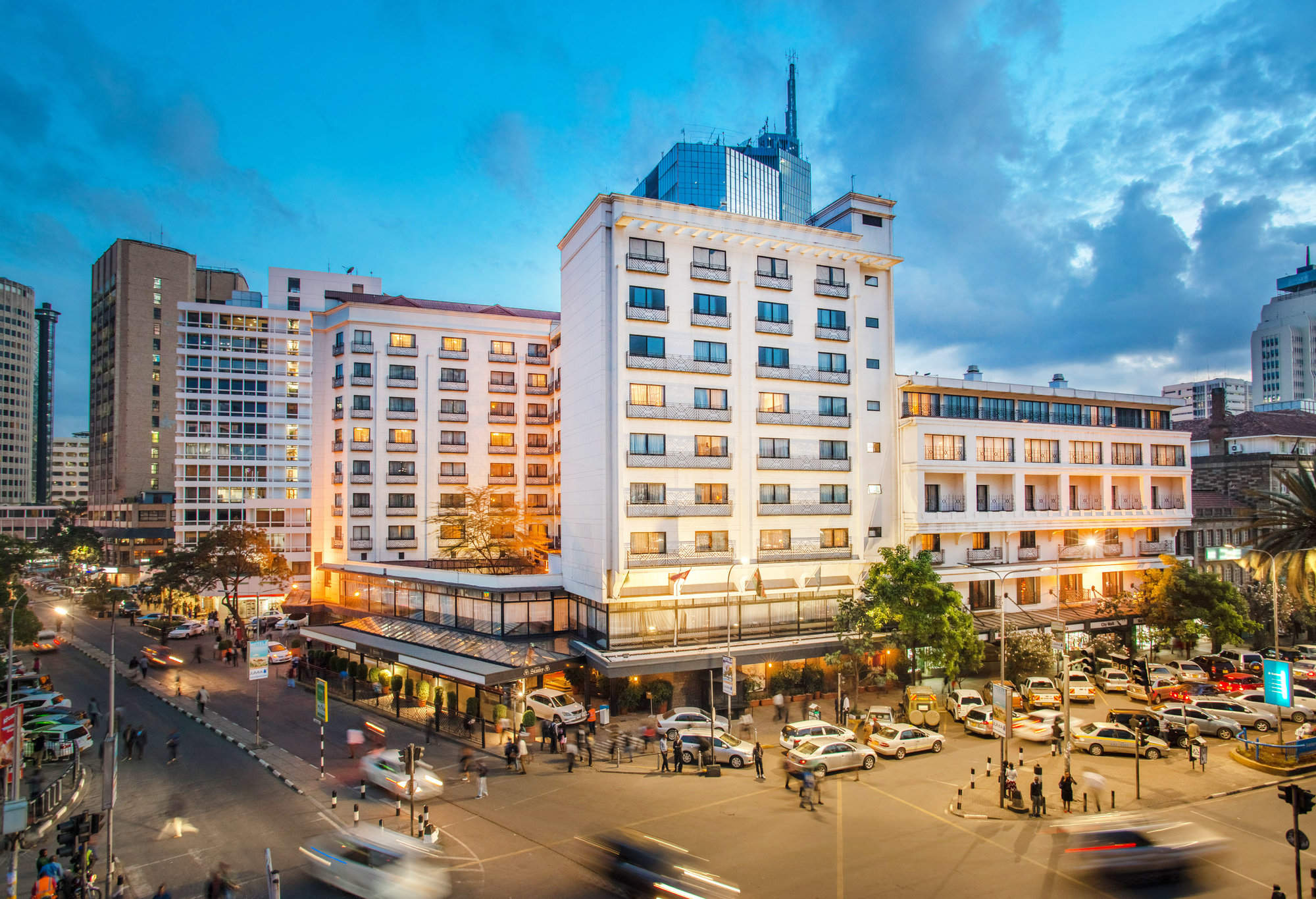
The Stanley
The Stanley is a large, traditional hotel – the oldest in Nairobi – offering a range of facilities.
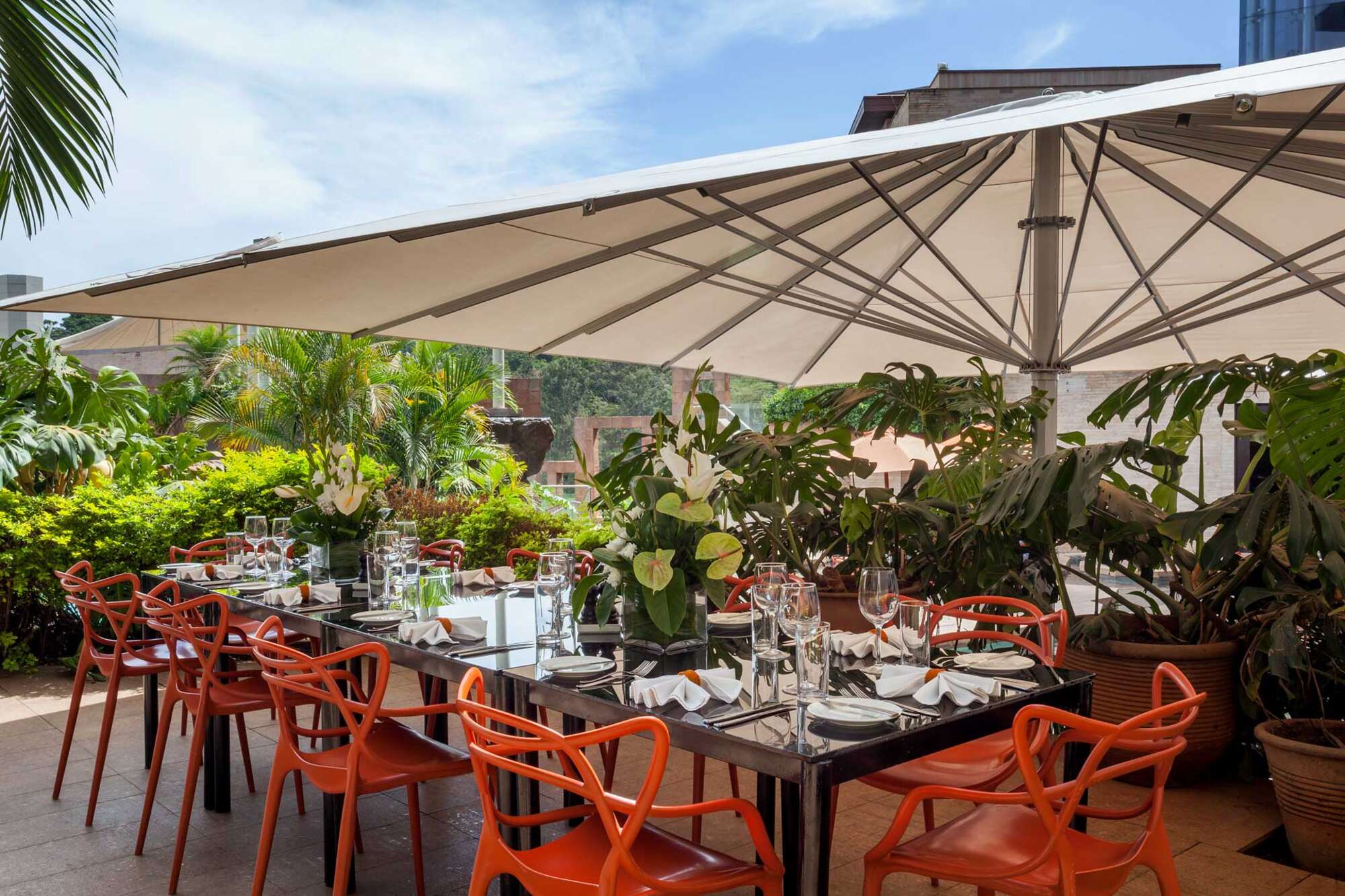
Tribe
Design-led, contemporary hotel in the Village Market area of Gigiri, a largely diplomatic and luxury residential suburb 10km north of Nairobi’s central business district.
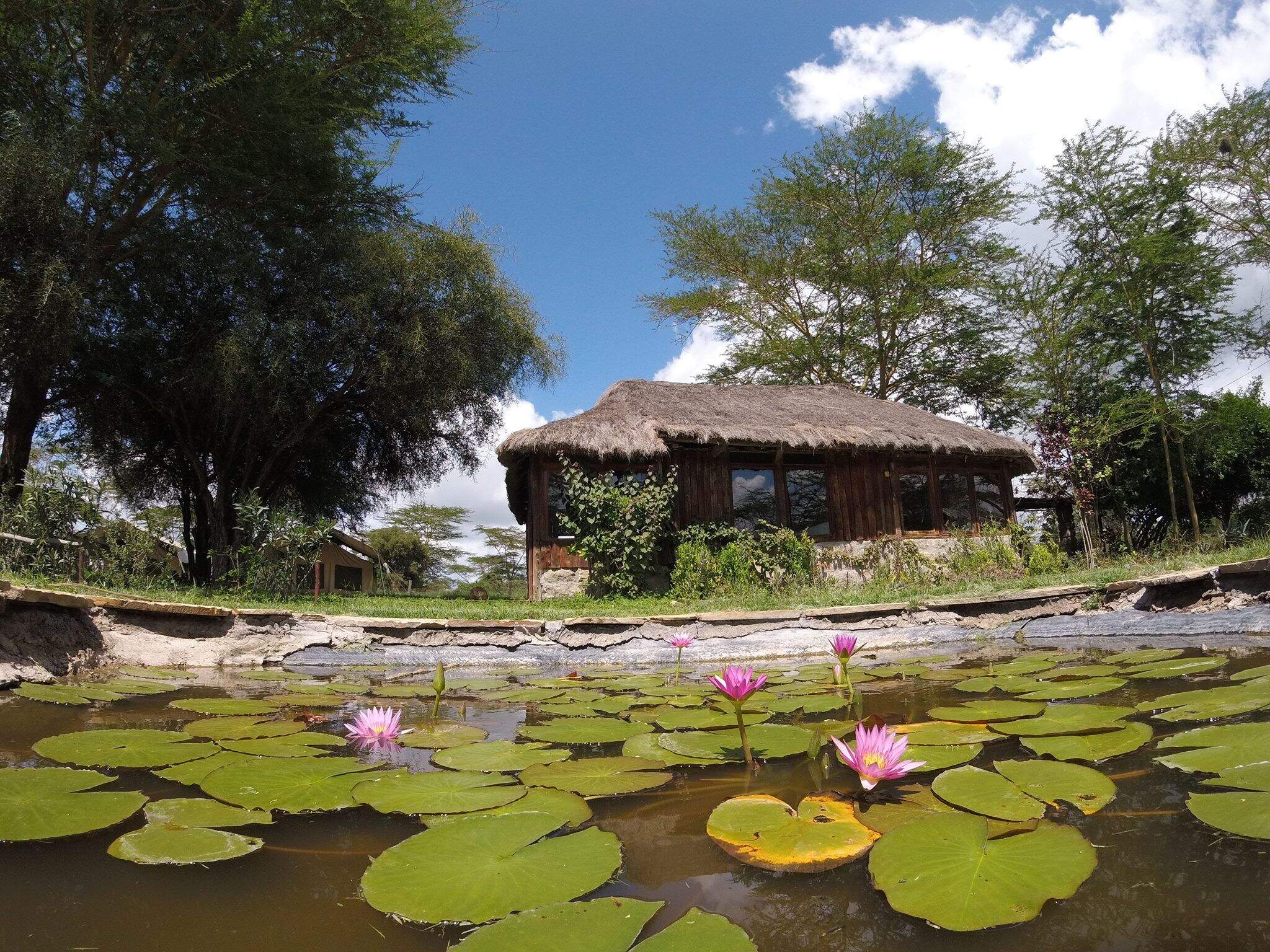
Acacia Camp
Acacia Camp is a rustic and affordable safari camp in a wildlife sanctuary a 30-minute drive towards Mombasa from Nairobi’s international airport.
When to go to Nairobi
Our month by month guide: What it's like to visit The Emakoko in Nairobi
Jan
Feb
Mar
Apr
May
Jun
Jul
Aug
Sep
Oct
Nov
Dec
Kenya in January
Clear, hot days and warm nights make this high season a popular time for safaris and it’s also good for diving and snorkelling as water clarity is excellent and gets better as the dry season progresses. Most lodges and tented camps treat January after the New Year week is over, as mid-season, making it a good compromise in terms of value for money with reasonably reliable, dry weather and some greenery left in the landscape.
Expert Africa bases its description of climate and weather in January, like the other months of the year, on the climate records of roughly the last 100 years, and it's fair to say that the weather and seasons since the beginning of this century have been highly irregular and unpredictable.
- On average, January is the second driest month of the year
- Elephants dig waterholes in the dry riverbed in the Samburu reserve.
- Wildebeest and many antelope have their calving season, to February.
- Migrant birds are seen in huge numbers, especially in the Rift Valley.
- Sea water clarity around the coral reefs generally good.
Our view
Fantastic: the very best time to visit
Weather in January
Kenya in February
With the short dry season well established, the grass grazed down and wildlife gathering close to water points, this is still a good time for a safari. Good water clarity in the Indian Ocean's coastal waters makes for excellent diving and snorkelling conditions.
Expert Africa bases its description of climate and weather in February, like the other months of the year, on the climate records of roughly the last 100 years, and it's fair to say that the weather and seasons since the beginning of this century have been highly irregular and unpredictable.
- On average, February is the driest month of the year.
- It’s sometimes possible to swim with whale sharks at Diani Beach.
- Migrant birds are still seen everywhere, especially near water.
- This is usually peak calving season for wildebeest and many antelopes.
- This month is often the hottest of the year, especially on the coast.
Our view
A very good time to visit
Weather in February
Kenya in March
Hot, increasingly humid weather – with good diving and snorkelling conditions at the start of the month – gives way to rains and lower accommodation costs. Expert Africa bases its description of climate and weather in March, like the other months of the year, on the climate records of roughly the last 100 years, and predicting the seasons since the beginning of this century has been difficult.
March is the month when – traditionally – intensely hot conditions build up until a cloudburst finally happens at the end of the month or in early April, to relieve the humidity. As ever, regional variations across the country can greatly impact on visitors' experiences.
- Sea-water clarity is best for diving before the long rains start.
- Visitor numbers are low, though the Easter holidays can be busier.
- Night skies can be scintillatingly clear in early March.
- Cropped down savannah grasses can make it easier to see the wildlife.
- Temperartures climb high, especially at lower elevations.
Our view
A good time to visit, with pros & cons
Weather in March
Kenya in April
April sees the full onset of the southeast monsoon wind or kusi, which heralds the long rains. Temperatures drop soon after the rains are established and you’ll often have facilities largely to yourself in this more affordable low season, sometimes known as the "green season". The bush quickly springs to life, with greenery sprouting almost before your eyes. While you're likely to get a fair number of heavy showers, the breaks in the rain can yield sparklingly clear conditions.
With the dust settled and bright sun piercing the clouds, conditions can be sublime for photography, especially first thing in the morning or in the late afternoon with another storm brewing. You may be lucky, or you may find conditions very wet and muddy.
- A wet month, the coast often gets more than 300mm (12in) of rain.
- Sunny spells can provide great light for photography.
- Buffalo and zebra calving season often happens in this month.
- Baby crocodiles hatch, for example on Central Island in Lake Turkana.
- Palearctic migrant birds gather to fly north to breeding grounds.
Our view
A time to avoid if possible
Weather in April
Kenya in May
While game viewing can be trickier as vegetation runs riot, between the cloudbursts the colours and light are great for photography at this time of year. Expert Africa bases its description of climate and weather in May, like the other months of the year, on the climate records of roughly the last 100 years, and while it's reasonable to expect heavy rains in many parts during this month, especially on the coast, the rains don't always come evenly or in some areas come at all.
In an El Niño year, the so-called long rains that normally are established across much of the country by May can be meagre, to the despair of farmers. On the other hand in a La Niña year, the long rains can bring floods. On the coast, the monsoon winds make the climate much more predictable, with heavy rains common throughout this month.
- Frogs breed in the ponds in the Arabuko Sokoke Forest near Watamu.
- Wildebeest, impala and other grazers are in rut (the breeding season).
- Kilimanjaro looks its best as heavy rain falls as snow on the summit.
- There's a sharp peek of rainfall on the coast with many rainy days.
- Accommodation prices are uniformly low, while some camps close.
Our view
A time to avoid if possible
Weather in May
Kenya in June
The rains give way to cloudy, cooler weather, often making for comfortable conditions by the end of the month, especially in the highlands. Starting from mid-June or the beginning of July and running until the end of October, this is the high season, and accordingly has higher accommodation rates and – at least until early September – higher numbers of visitors.
While the early part of June can often be rainy on the coast, it can be a great time to go on safari, with fresh greenery, many young animals and good photographic conditions with clear air.
- The Taru Desert, inland from the coast, is carpeted with flowers.
- The Lake Turkana Cultural Festival is held in Loiyangalani.
- Madaraka Day (commemorating self rule) is 1 June.
- The annual Lewa marathon runs a course through the wildlife.
- The Diani Rules "sports" event rips up the rulebook at Diani Beach.
Our view
A good time to visit, with pros & cons
Weather in June
Kenya in July
Kenya’s “winter" season sets in (winter is a misnomer but locals feel the change), and the highlands can be rather grey. Skies are often cloudy and the days can be surprisingly cool, with an average daytime high in many highland safari areas of 15-20°C and night-time temperatures dropping below 10°C in Nairobi and the highlands. Lower parts of the country and the coast are usually warm and dry, typically reaching highs of around 25°C with lows in the high teens.
As this is the start of the high season, coinciding with the usual arrival of the wildebeest migration in the Maasai Mara, July is a busy month. Ask your Expert Africa specialist to advise on how to avoid the crowds, which is not that difficult to do.
- The wildebeest migration usually reaches the Maasai Mara in July.
- Simbi Lake (Kisumu) and Crater Lake (Naivasha) can attract flamingoes.
- Watersports start to pick up and some surfing is possible at Malindi.
- Afternoon thunderstorms are a common feature in the Maasai Mara.
- The sea can be choppy along the coast, making diving difficult.
Our view
A good time to visit, with pros & cons
Weather in July
Kenya in August
The Great Migration fills the plains of the Maasai Mara, and school’s out, so the park roads are full of tourists – ask your Expert Africa specialist for advice on crowd avoidance tactics. Choose a private conservancy rather than a public national park or national reserve for quieter conditions.
Like July, August is generally mild and relatively dry in the safari areas, but it can be very chilly in the highlands, even in the middle of the day, and hail occasionally falls above altitudes of around 2,400m (8,000ft). Nairobi can be disappointingly overcast, with low cloud.
- Apart from Christmas holidays, this is the busiest month of the year.
- Late August sees peak wildebeest drama at the Mara River crossings.
- Coastal winds are good for kite- and wind-surfing.
- Few mosquitoes are around at this generally dry time of year.
- The annual Camel Derby takes place in the Samburu capital, Maralal.
Our view
A good time to visit, with pros & cons
Weather in August
Kenya in September
The skies clearing of cloud signals the start of hot, dry weather with little chance of rain – and, after the first few days of the month, far fewer visitors – making the latter part of September a good time for a quieter safari. While early September is often good for dramatic migration crossings along the Mara River, you might consider deliberately postponing your trip until later in the month, when the migration can still be very impressive and visitor numbers fewer.
If tourist surges are somewhat predictable, however, the patterns of the wildebeest migration are more volatile, and like all of Expert Africa's climate and weather assessments, they are based on accumulated years of experience rather than guaranteed certainty.
- This is still high season, with prices to match.
- Many river crossings take place on the Mara river in both directions.
- Natural bush fires flush out insects and small animals for predators.
- The Rift Valley Music Festival takes place by Lake Naivasha.
- With school holidays over by early September, late-month is quieter.
Our view
Fantastic: the very best time to visit
Weather in September
Kenya in October
Still hot, mostly dry and not too busy, this is many people’s preferred month for a safari, and it’s also good for diving and snorkelling. The wildebeest and zebra herds of the great migration are often still to be seen, though in dwindling numbers. The swamps of Amboseli attract thirsty wildlife including large herds of elephants.
While we wouldn't expect much rain across most of the country this month, the climate has become so unpredictable that you can never say never, and the possibiity of the short rains – usually associated with November to mid-December, starting early, can't be discounted.
- This month sees the tail end of the great migration in the Mara.
- Palearctic migrant birds start to arrive, staying until March.
- Turtle nests hatch at Watamu, until November.
- Amboseli elephants focus on the swamps for their daily water.
- The Indian Ocean monsoon winds turn from southeast to northeast.
Our view
A very good time to visit
Weather in October
Kenya in November
The northeast monsoon wind or kaskazi heralds the start of the “short rains", usually some time in the second half of the month. From November to mid-December, this is the low season, and accordingly has lower accommodation rates and lower visitor numbers. Across most of the country you can expect warm, somewhat cloudy weather, with occasional heavy showers and localised flooding.
Expert Africa bases its description of the climate in November, like the other months of the year, on the records of roughly the last 100 years, and it's fair to say that the seasons since the beginning of this century have been highly irregular and unpredictable: some years the short rains don't come at all, or don't reach every part of the country. In an El Niño year, the November short rains can be very heavy, but in a La Niña year, they can fail completely.
- Swimming with dolphins in Lamu can be done from now until April.
- Birders gather at Ngulia in Tsavo West to ring Palearctic migrants.
- The Lamu Cultural Festival takes over the town and Lamu Creek.
- Agricultural shows often take place regional market towns.
- This is low season, so camps can be great value, with special offers.
Our view
A good time to visit, with pros & cons
Weather in November
Kenya in December
In a typical December, the rains usually finish by middle of the month, leaving the landscape looking its best, under clear blue skies, and heralding the start of the second peak tourist season from around 20 December to the first week of January. Our assessment of the likely weather in December, like the other months of the year, is based on climate records, and it's fair to say that the seasons since the beginning of this century have been highly irregular and unpredictable.
Christmas can sometimes be wet, but most years the rains have finished a week or two earlier, with the festive season ushering in the perfect combination of clear skies and sunshine by day and starry nights.
- Christmas and New Year are busy, with the lodges and camps full.
- Rates are highest after 24 Dec, with supplements on public holidays.
- Republic Day and Independence day are celebrated on 12 December.
- Good kite- and wind-surfing restarts, with strong northeasterly winds.
- Mango season begins, providing excitement for primates and elephants.
Our view
A good time to visit, with pros & cons
Weather in December

Looking for inspiration on where to travel next?
Visit our trip chooser to explore your options and find inspiration for your perfect African adventure
Inspire me